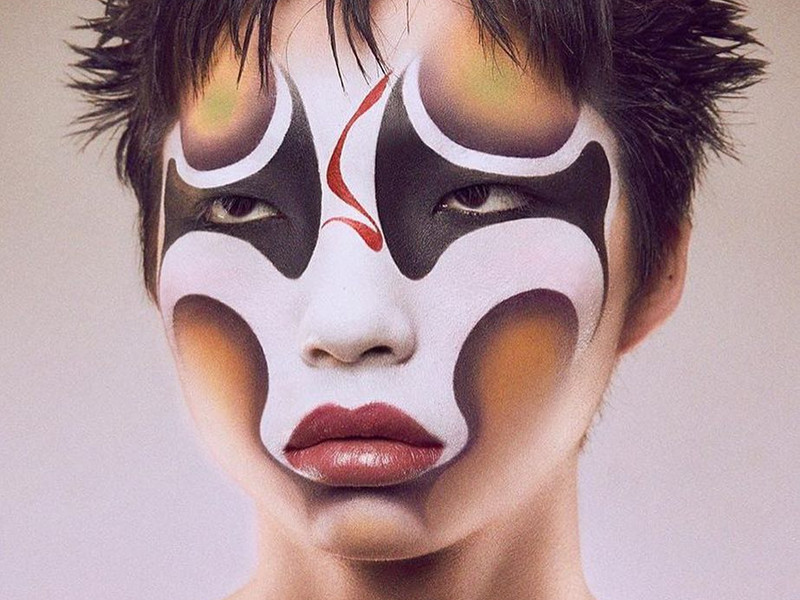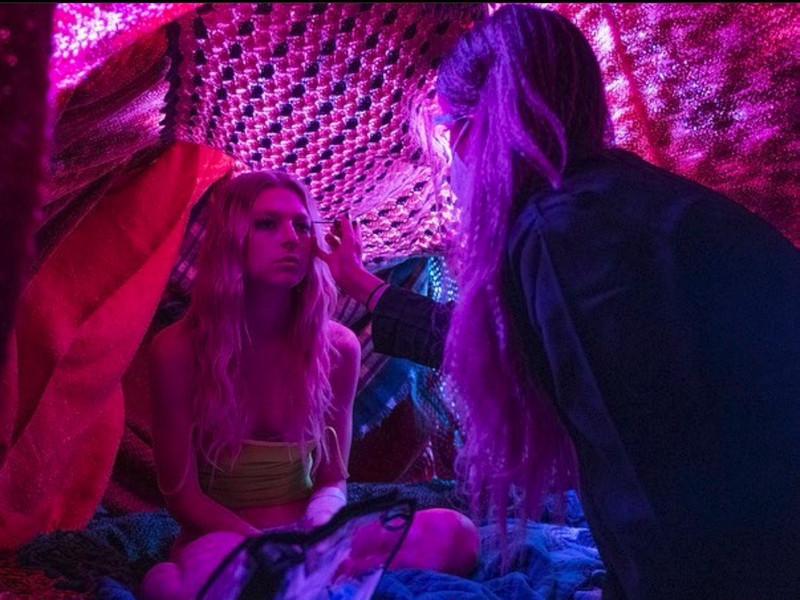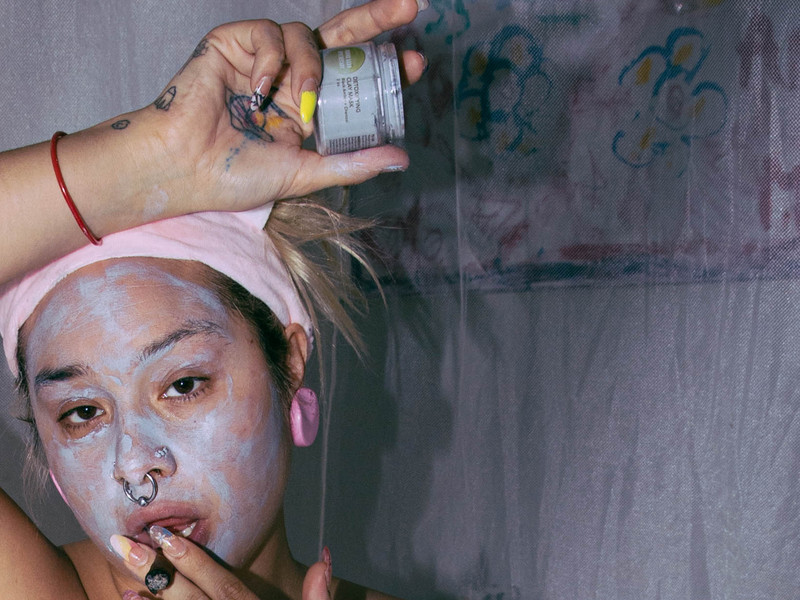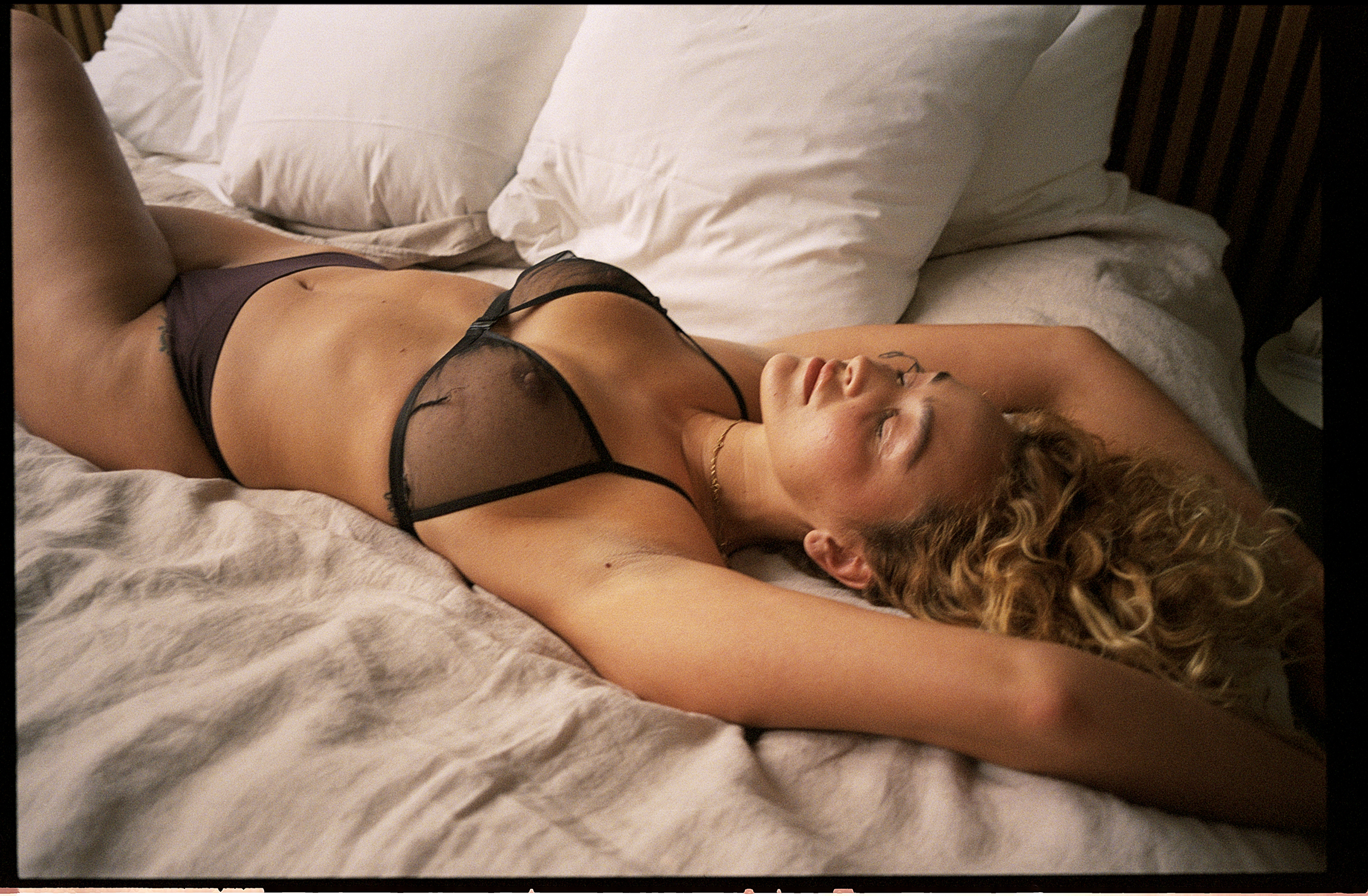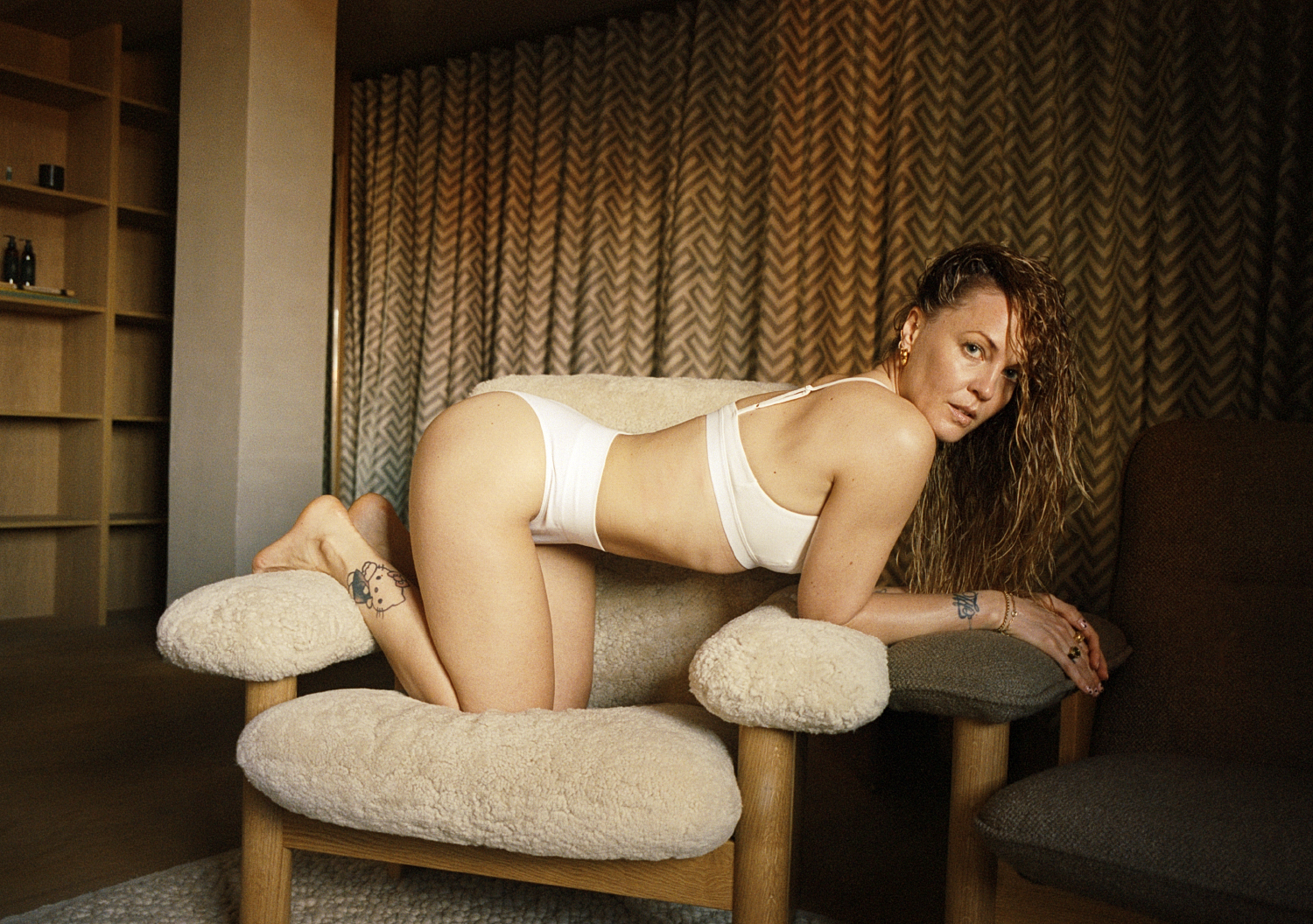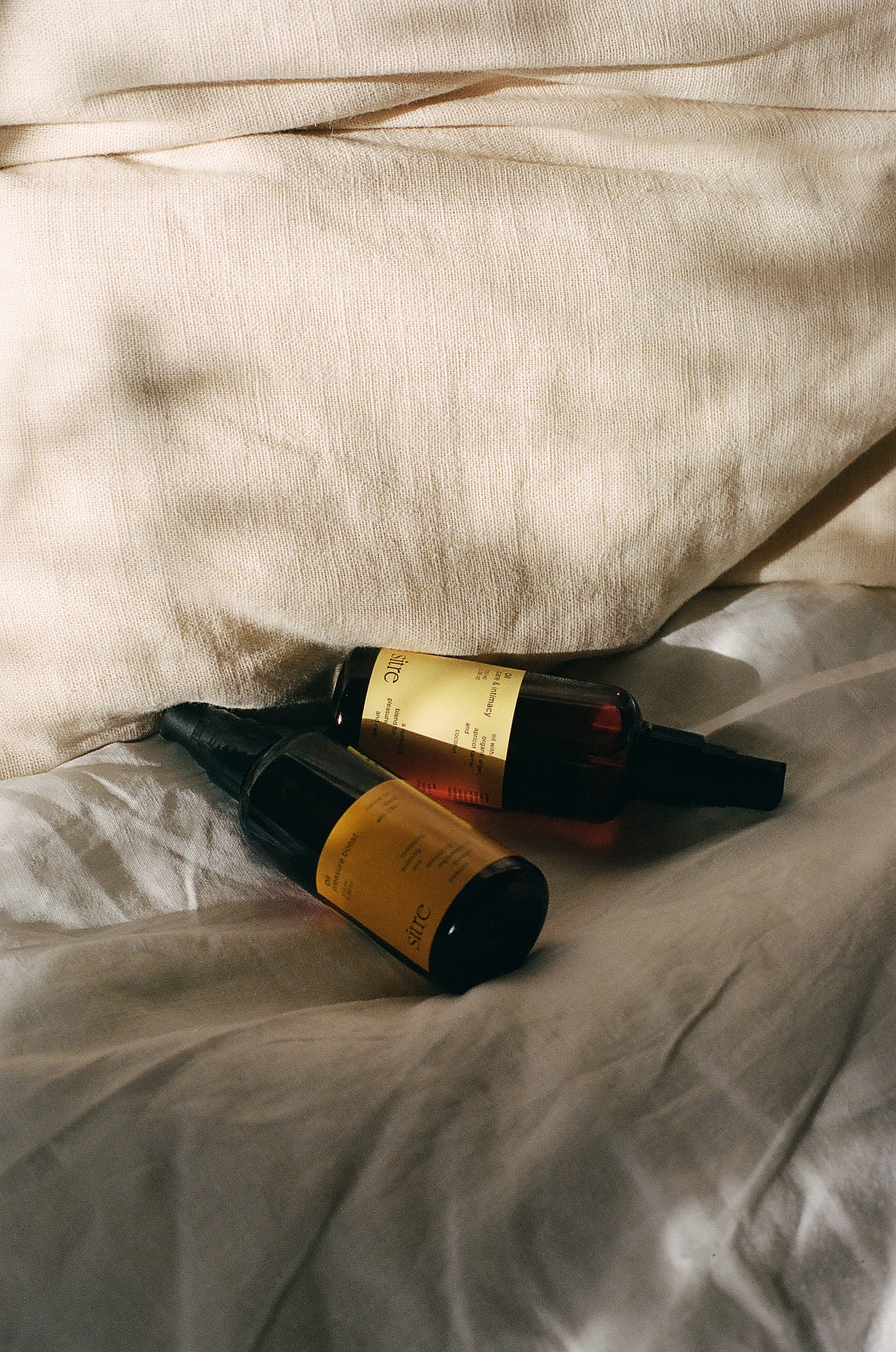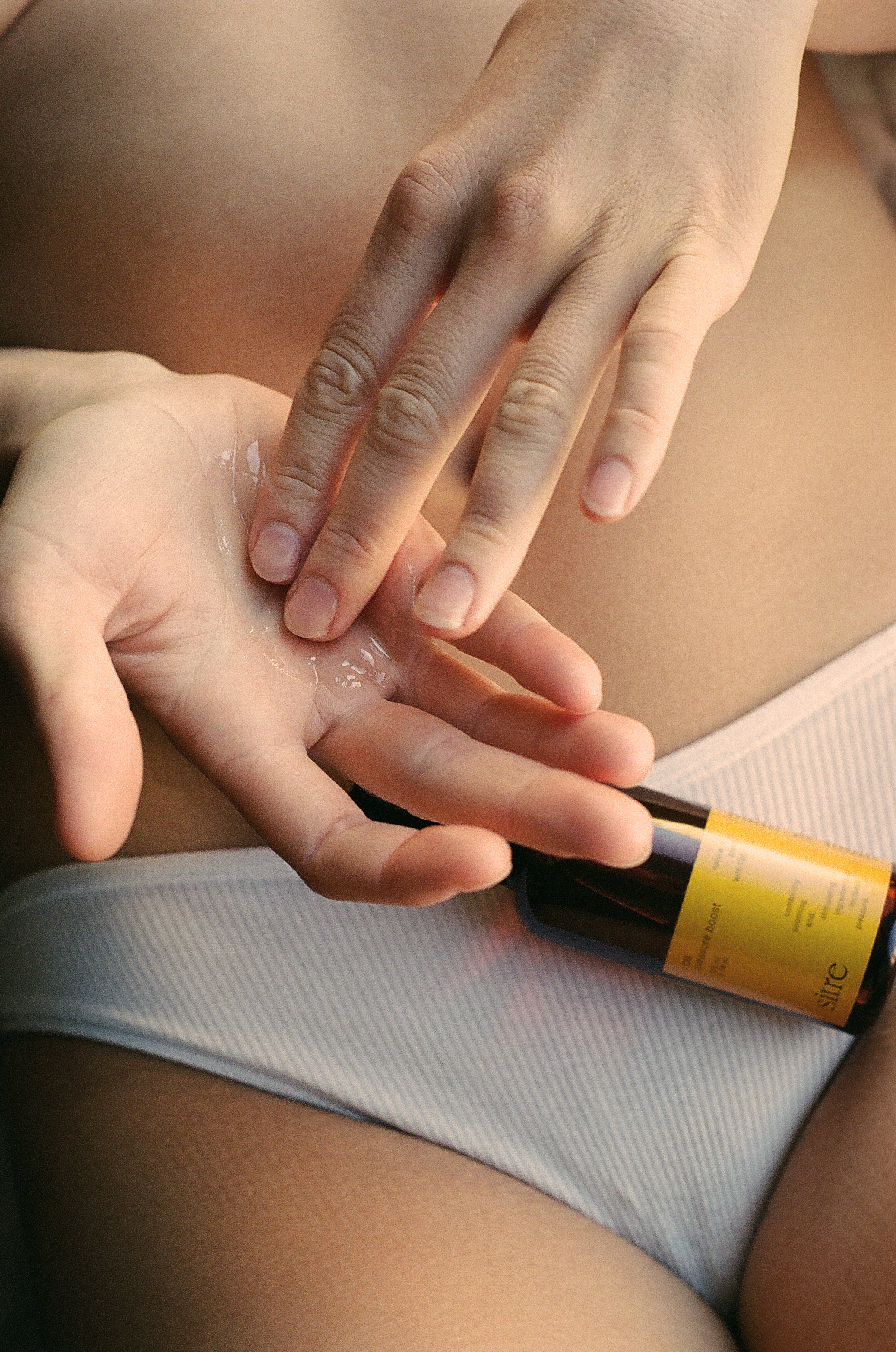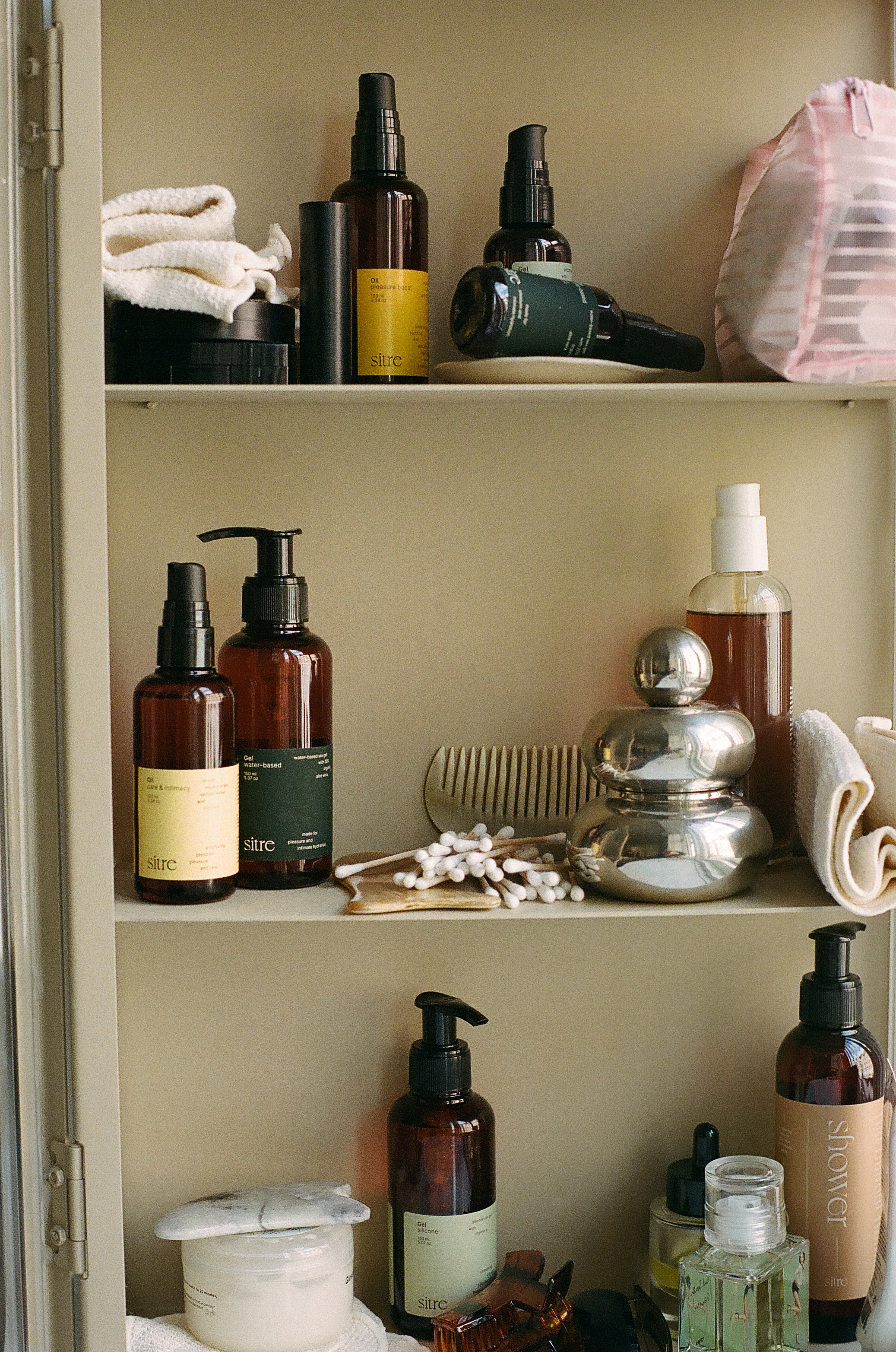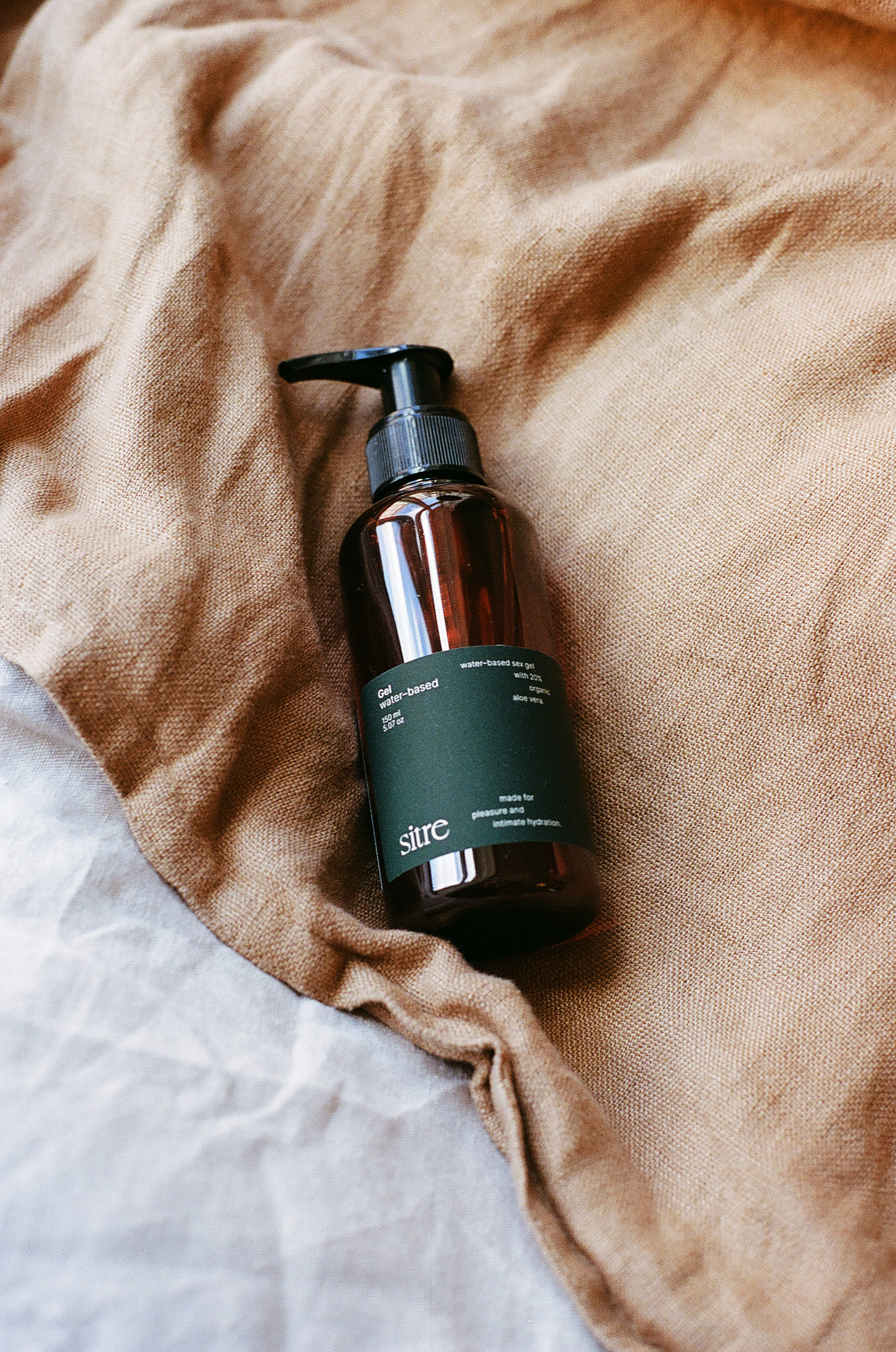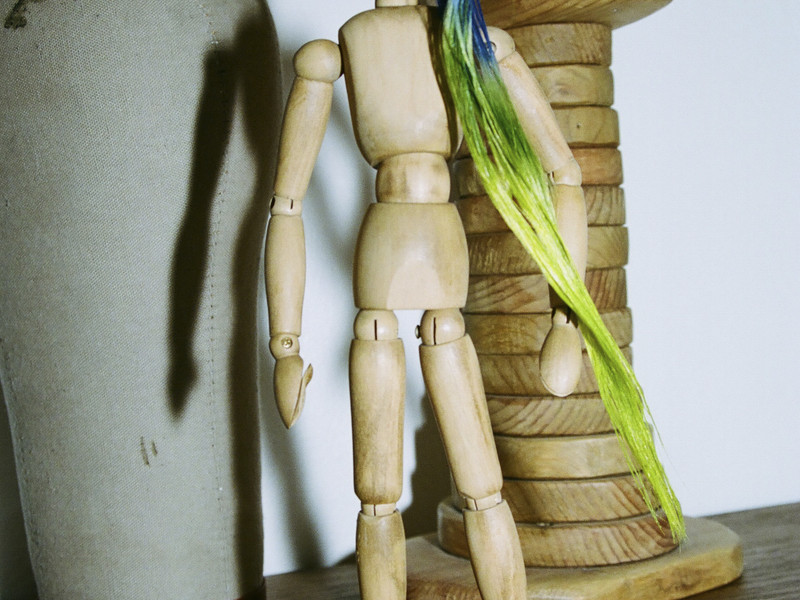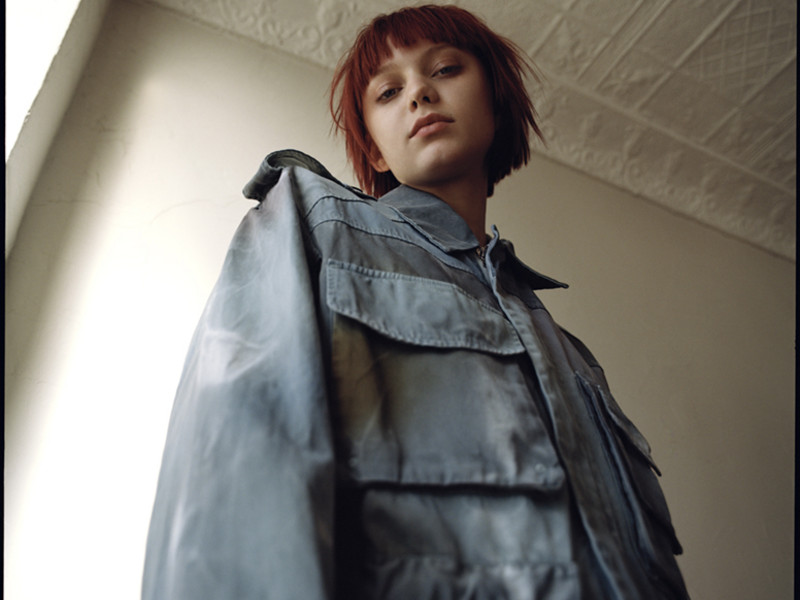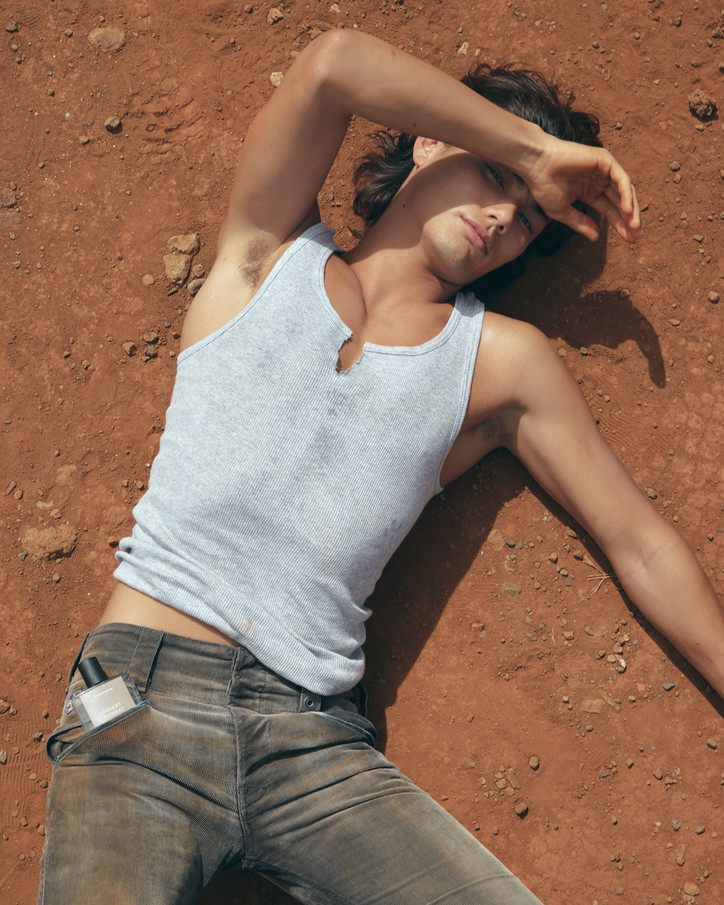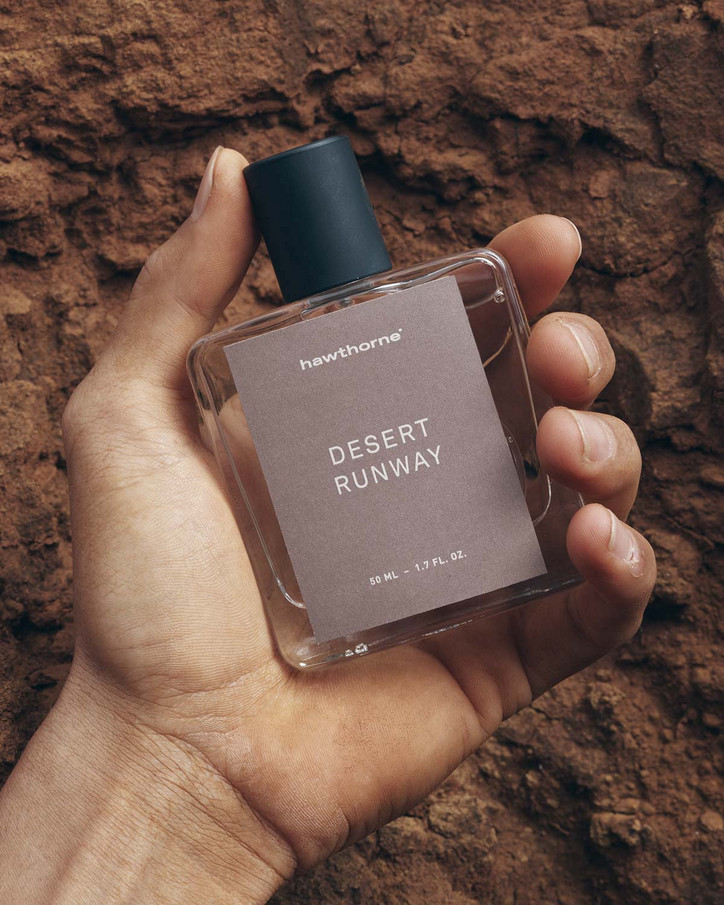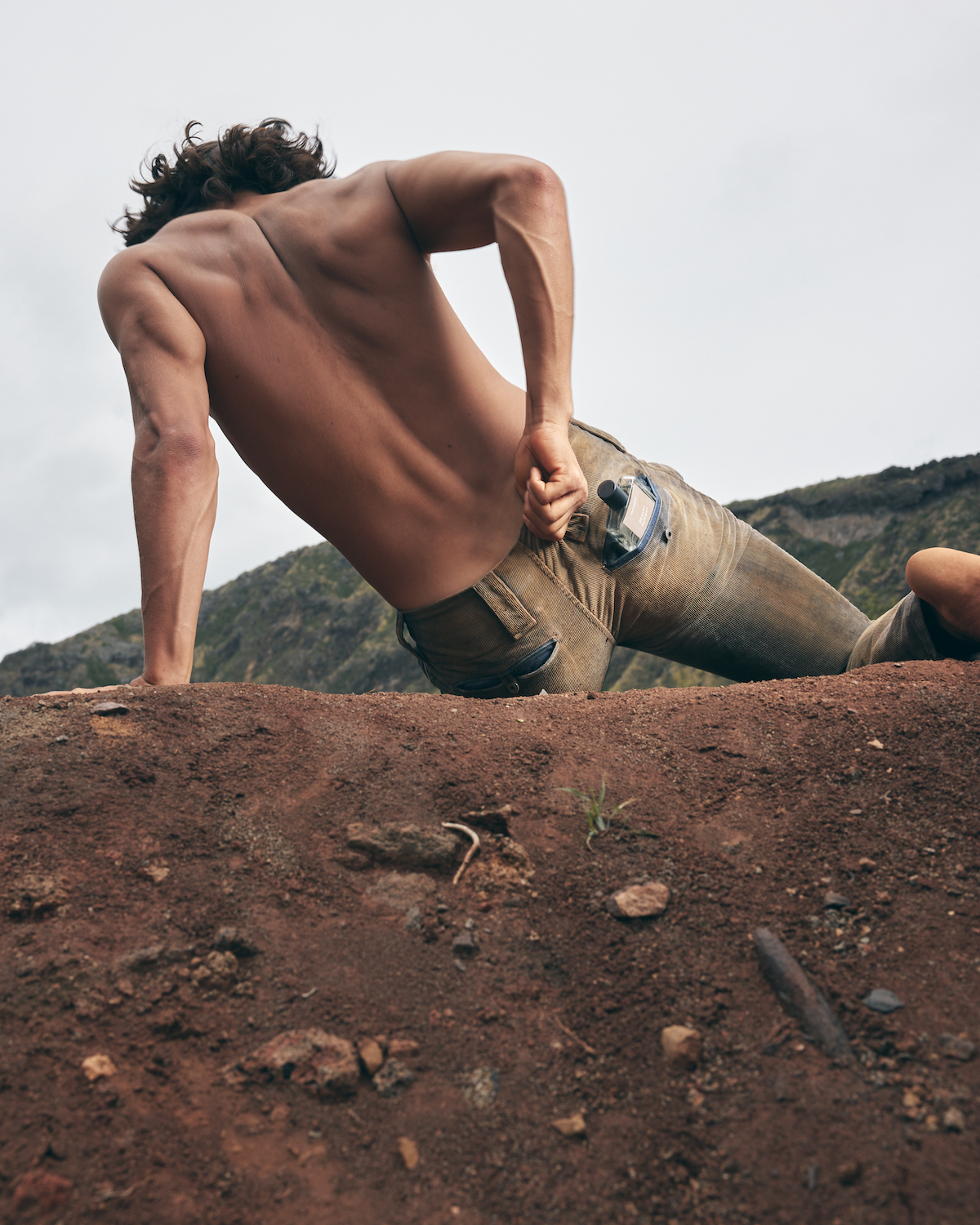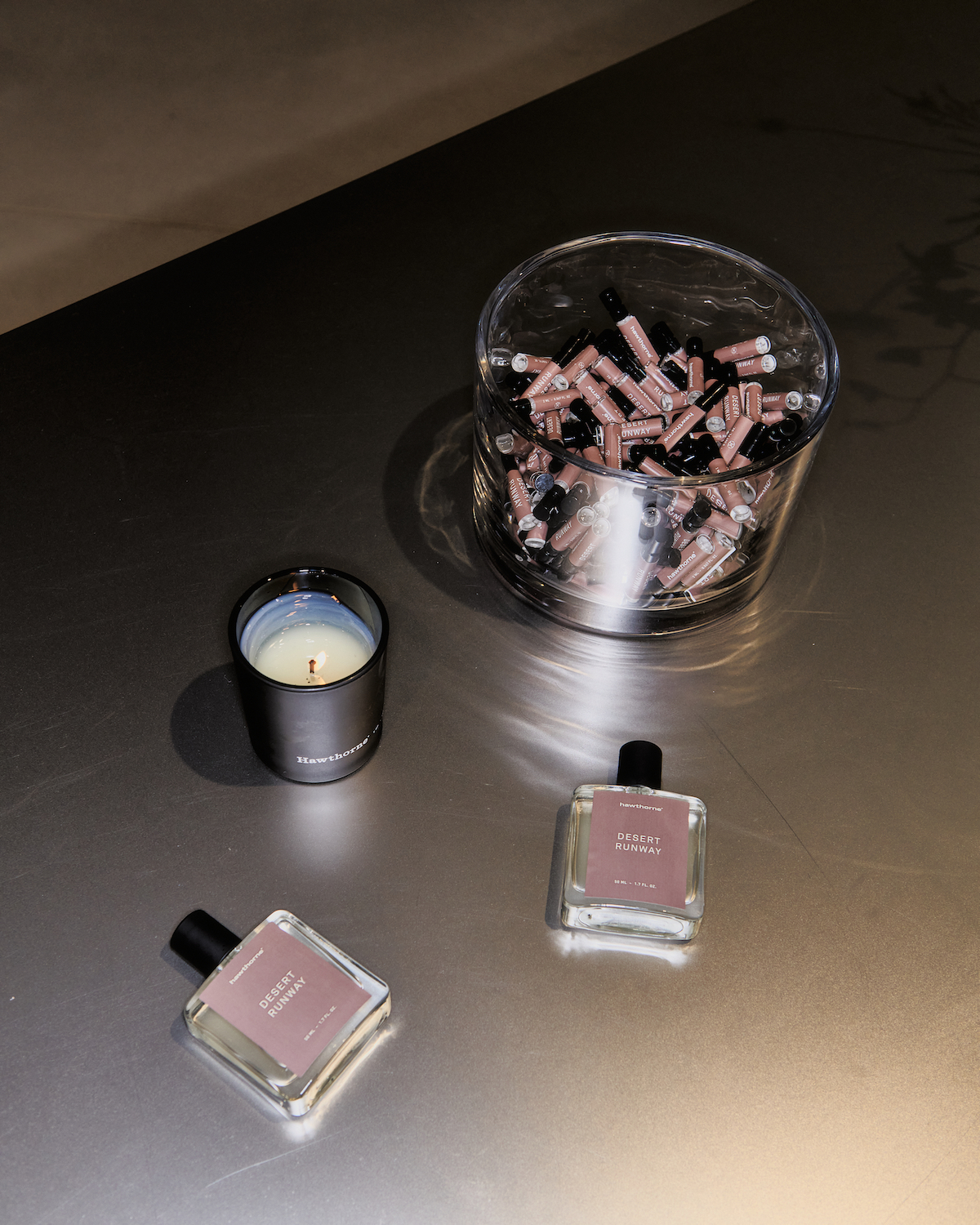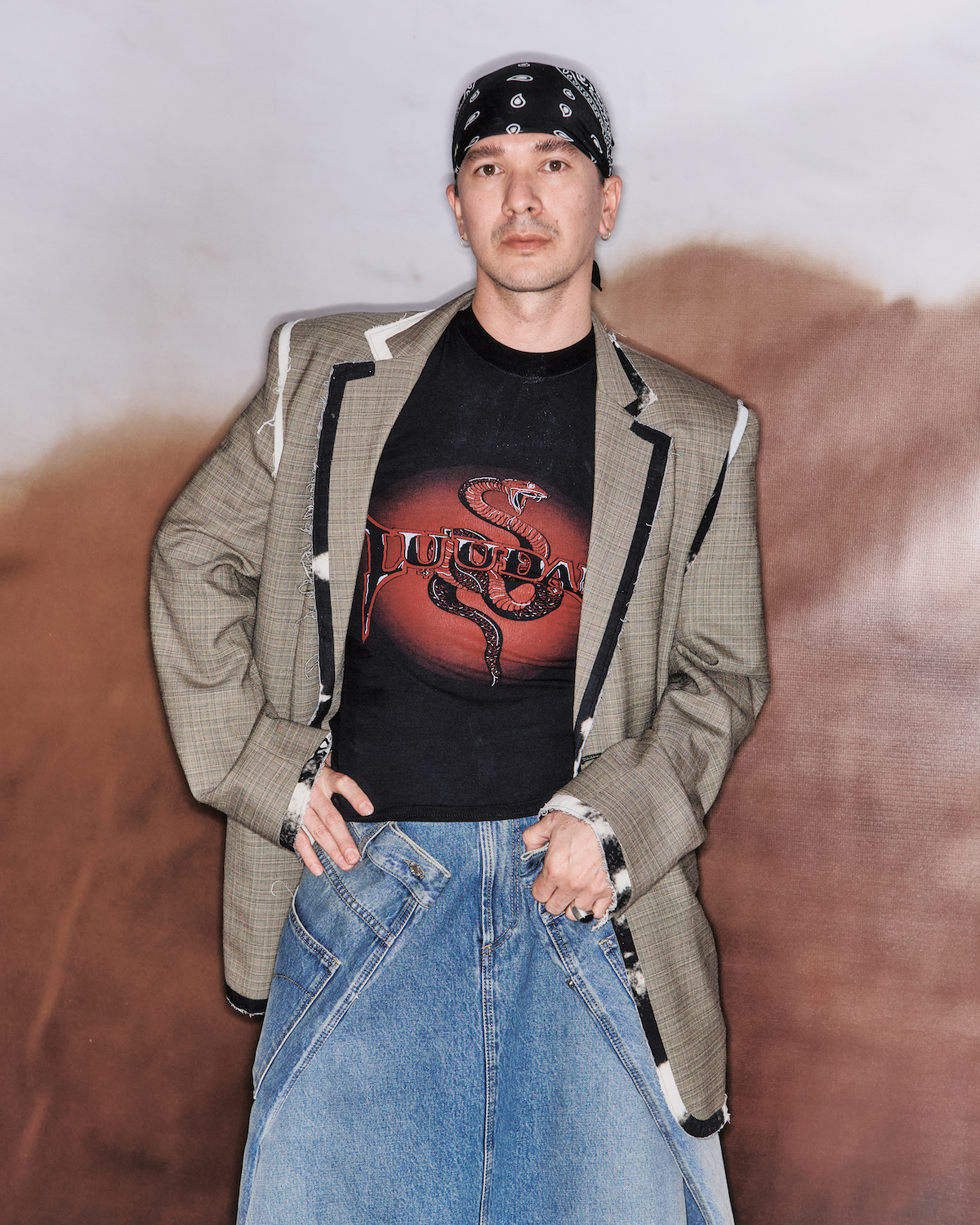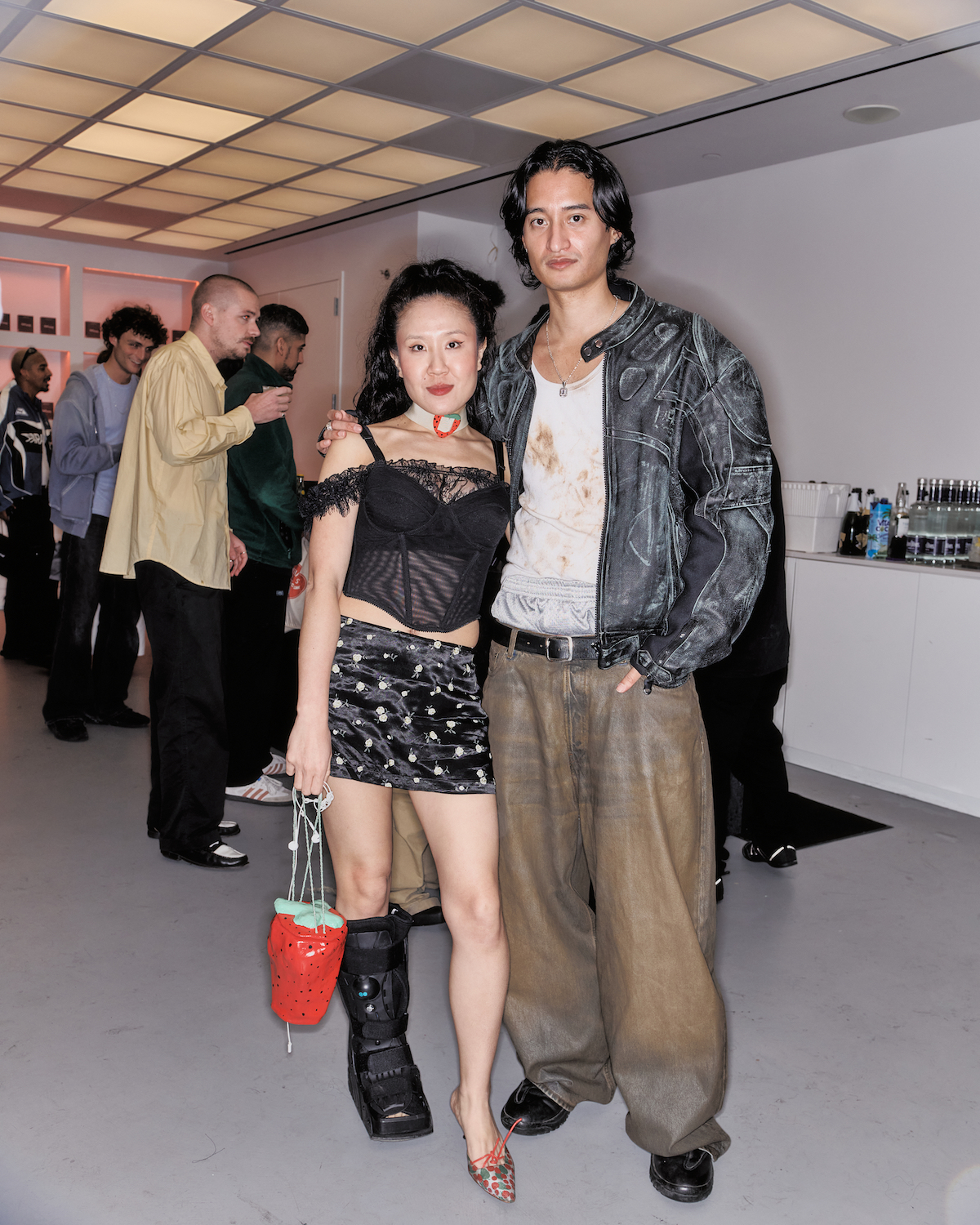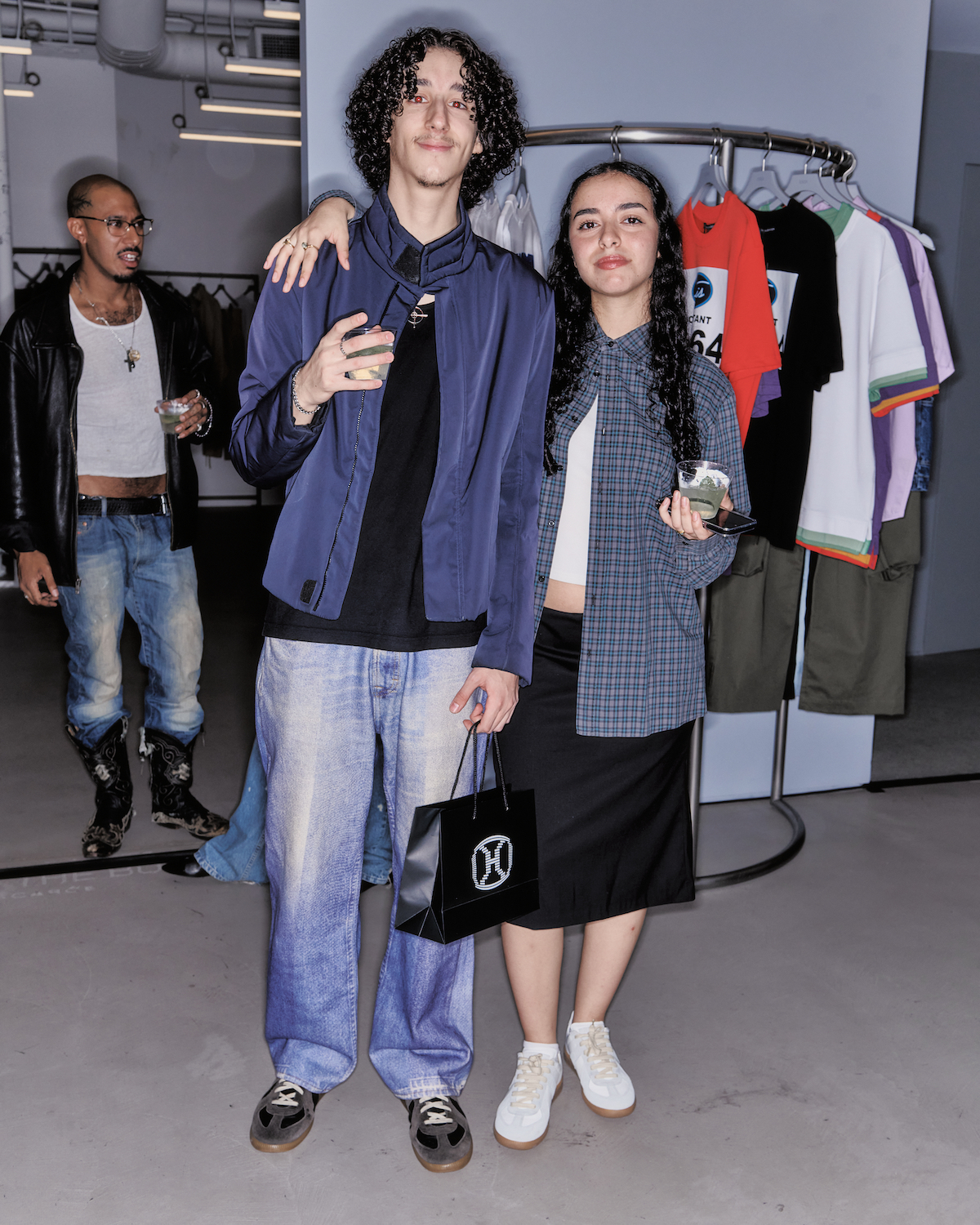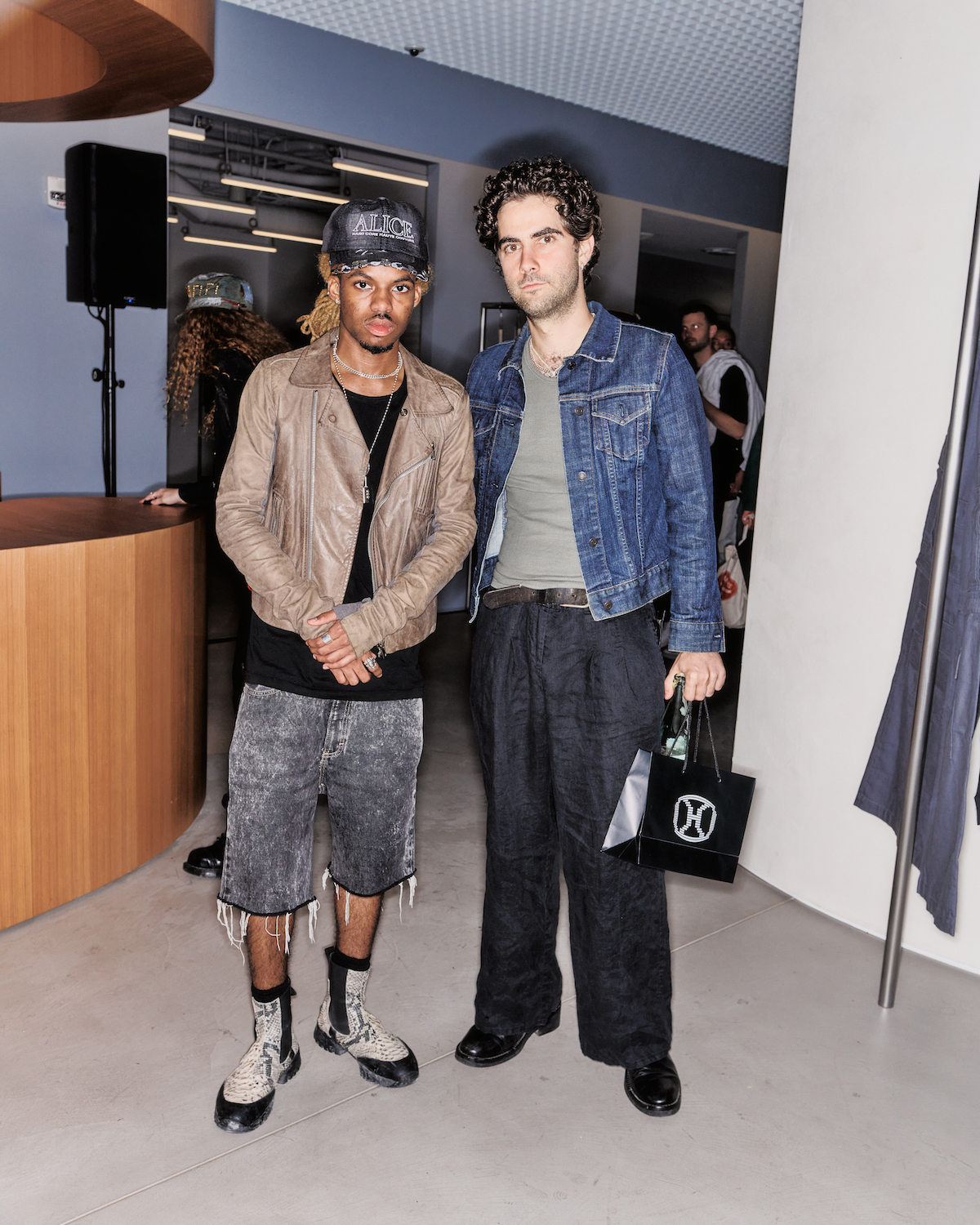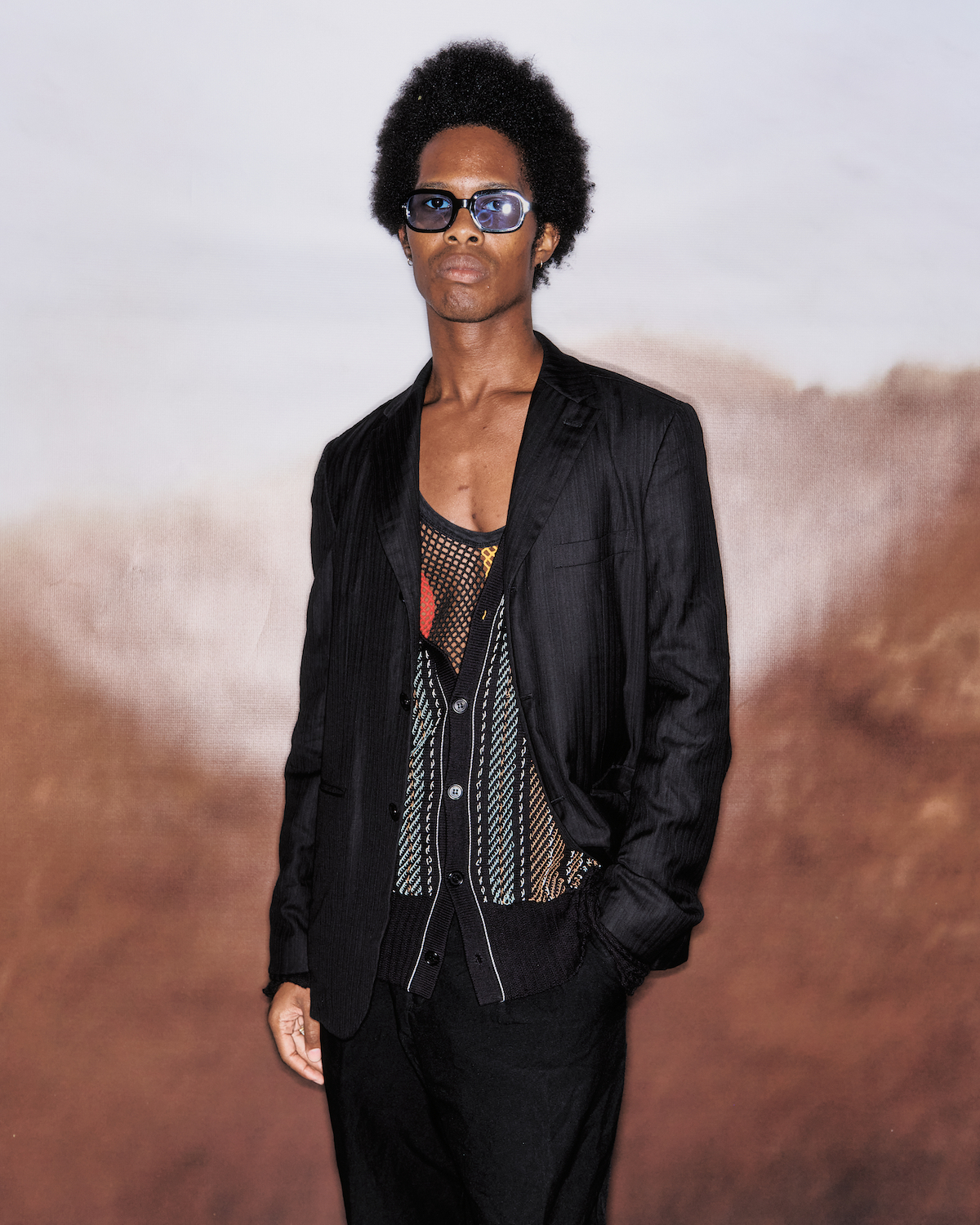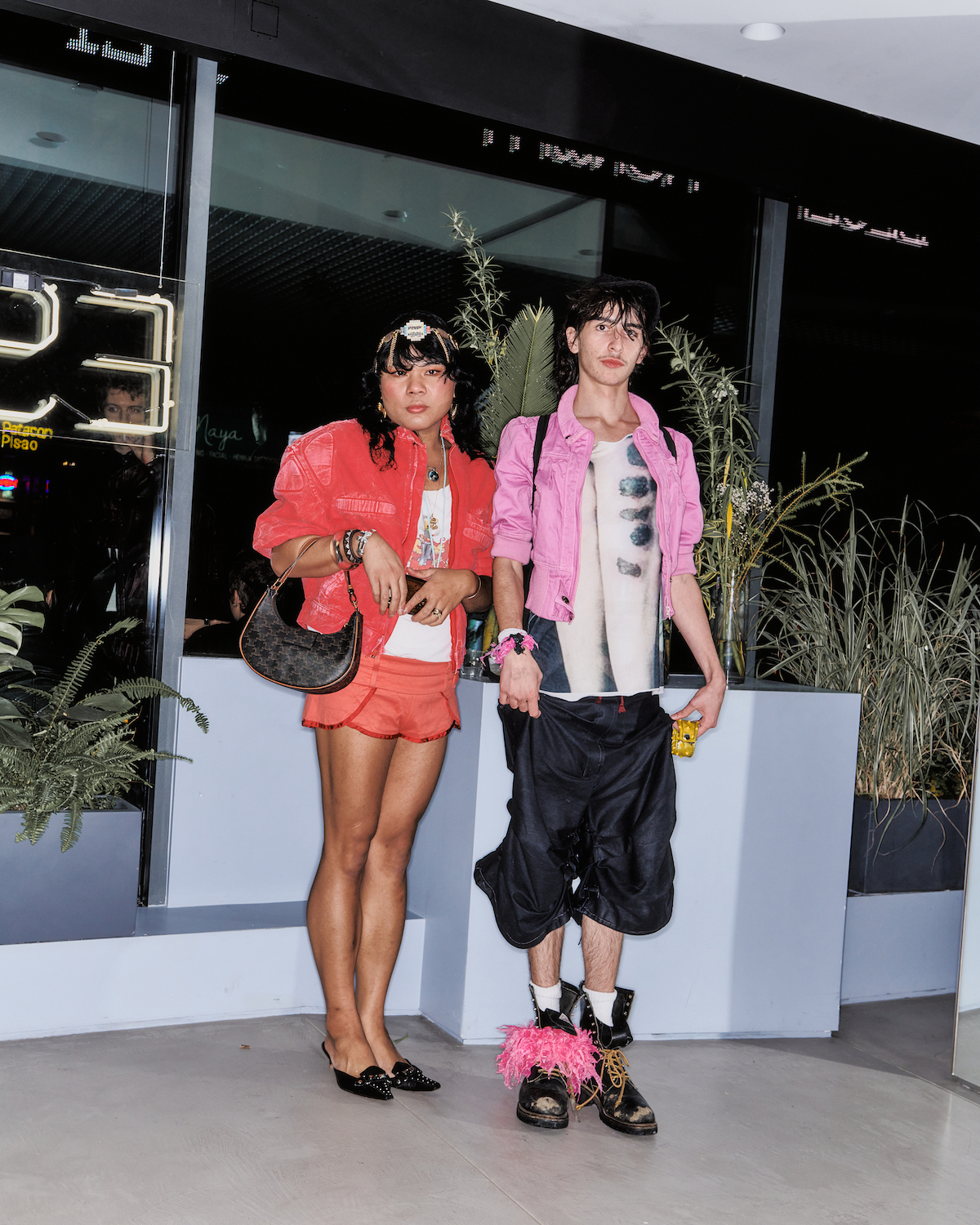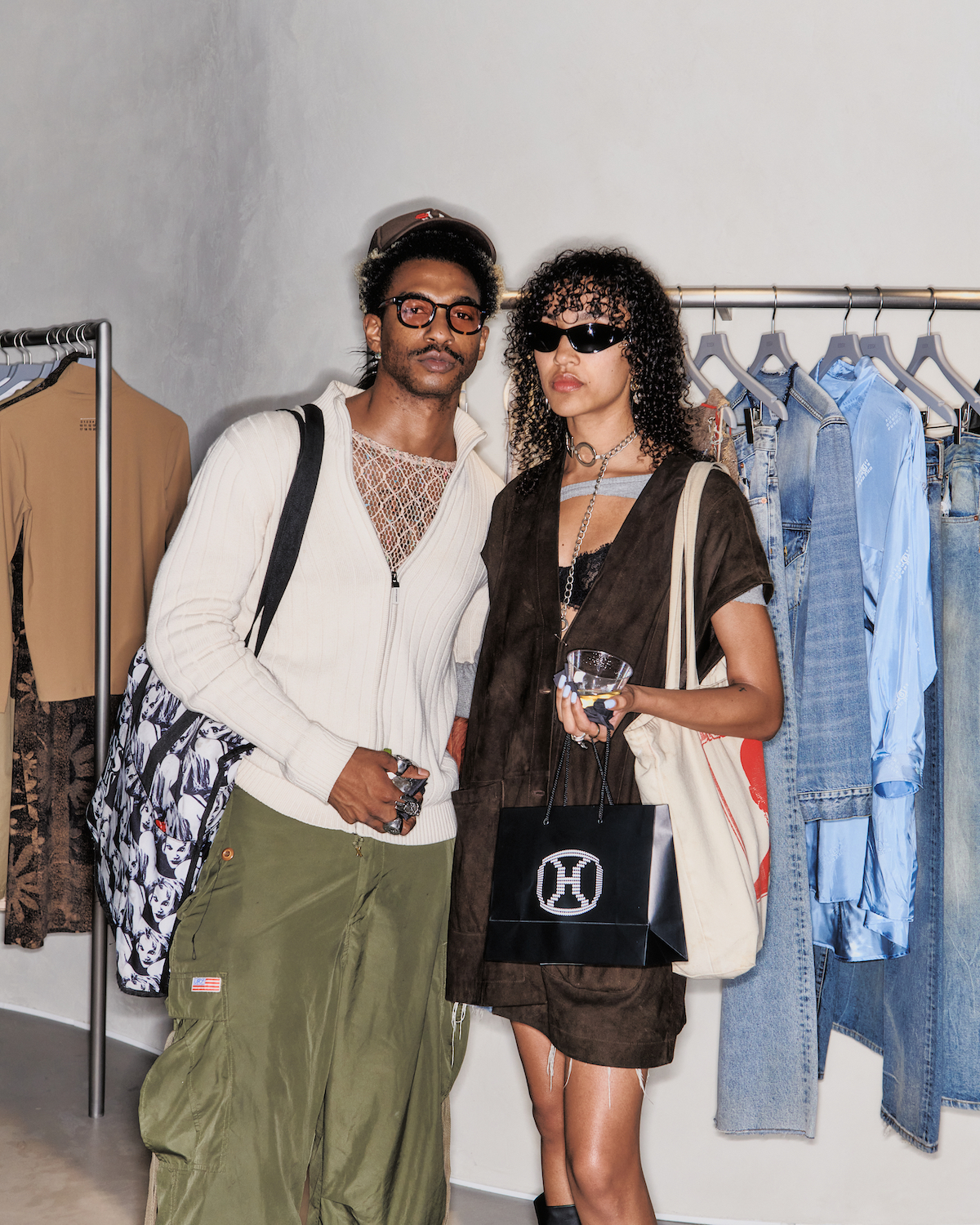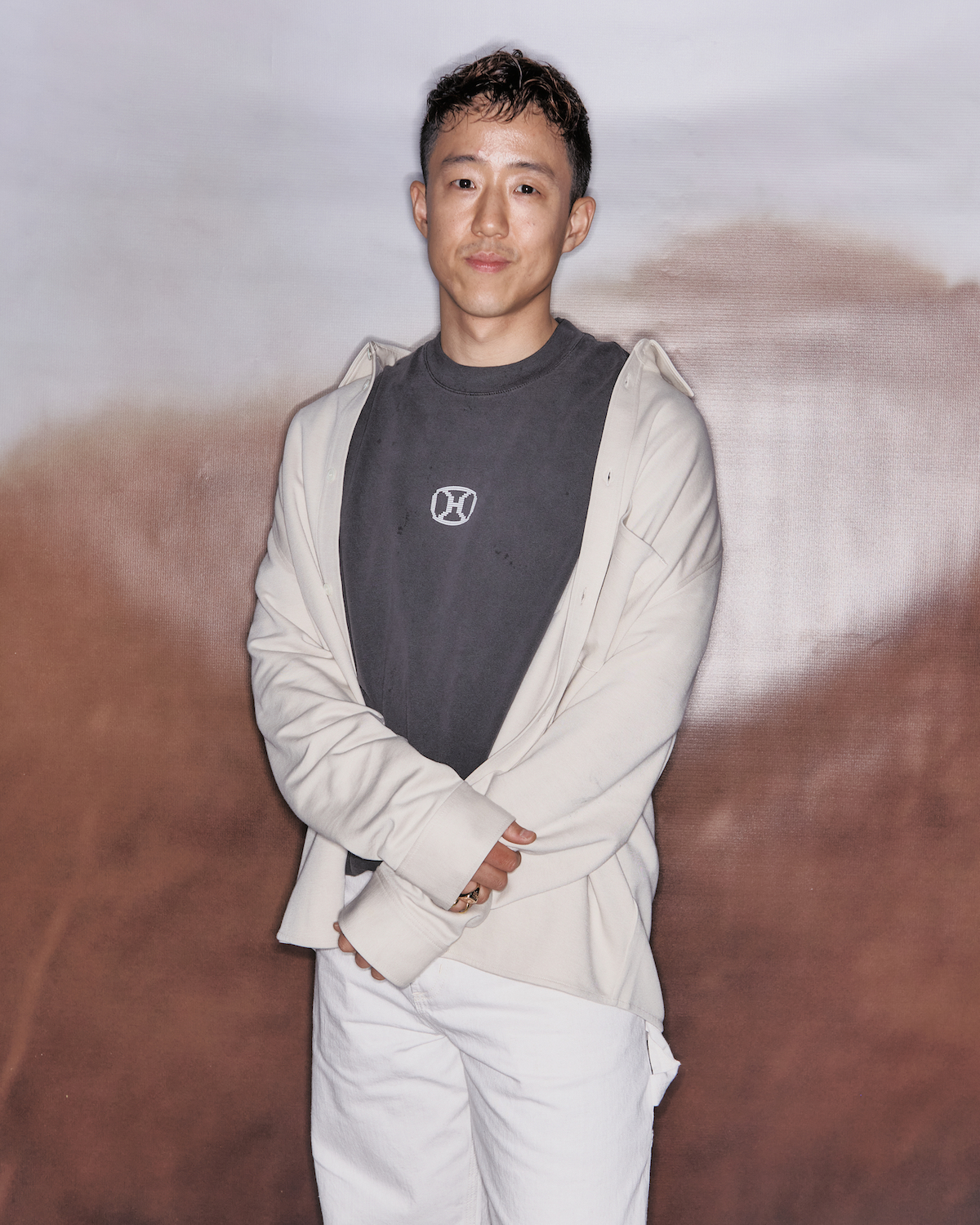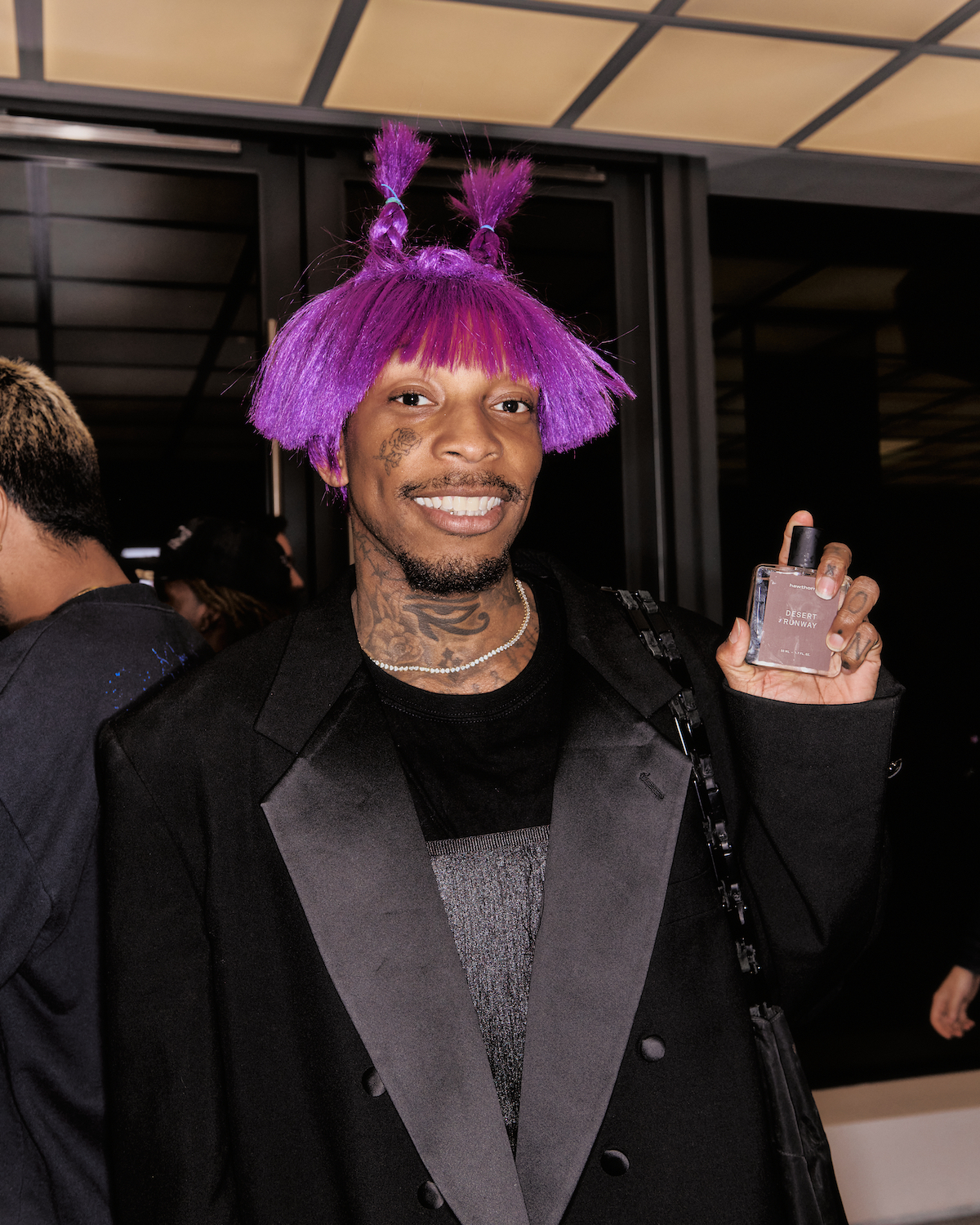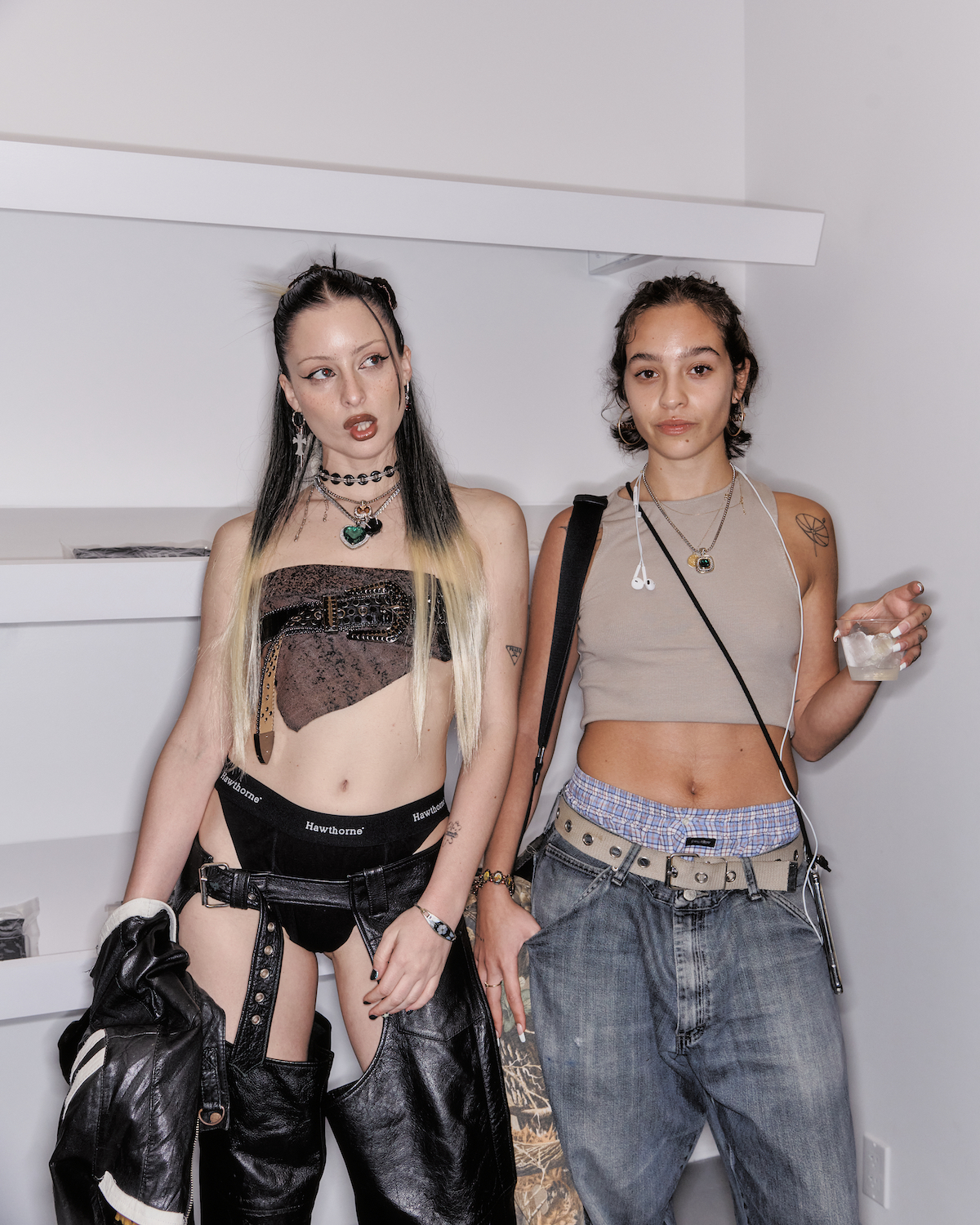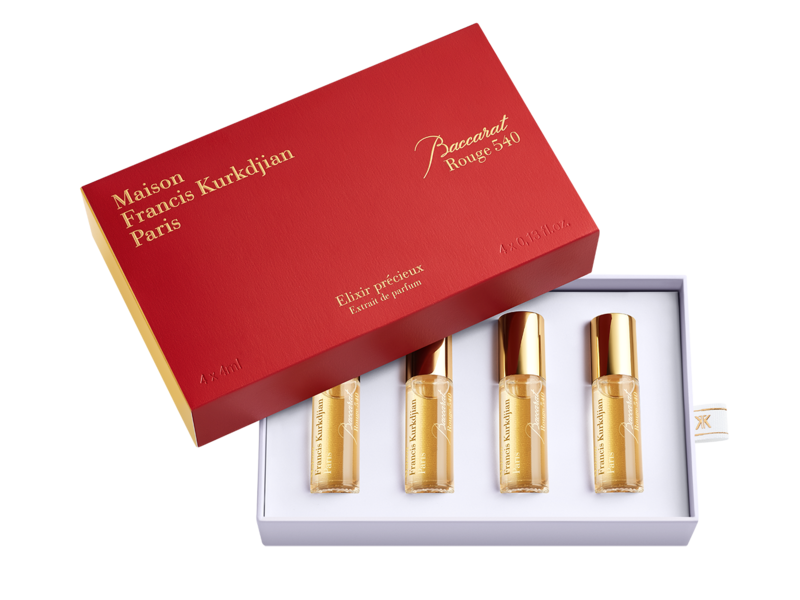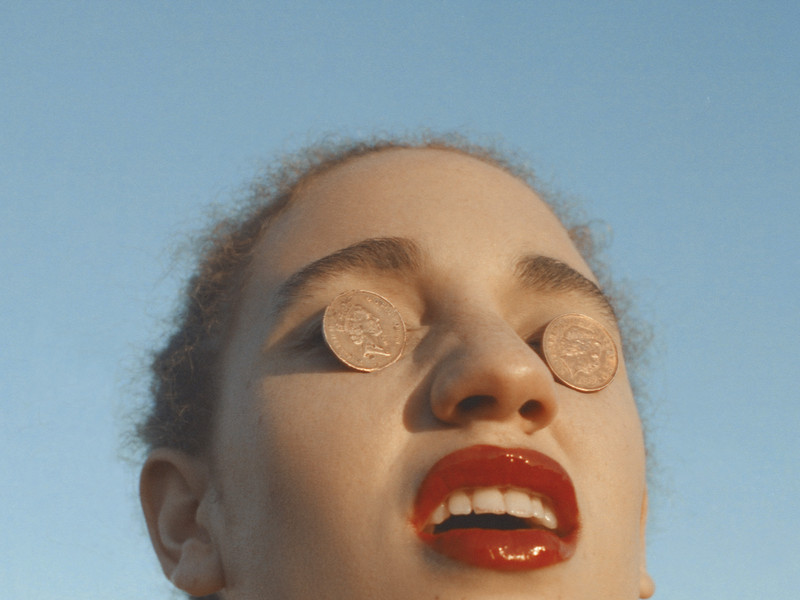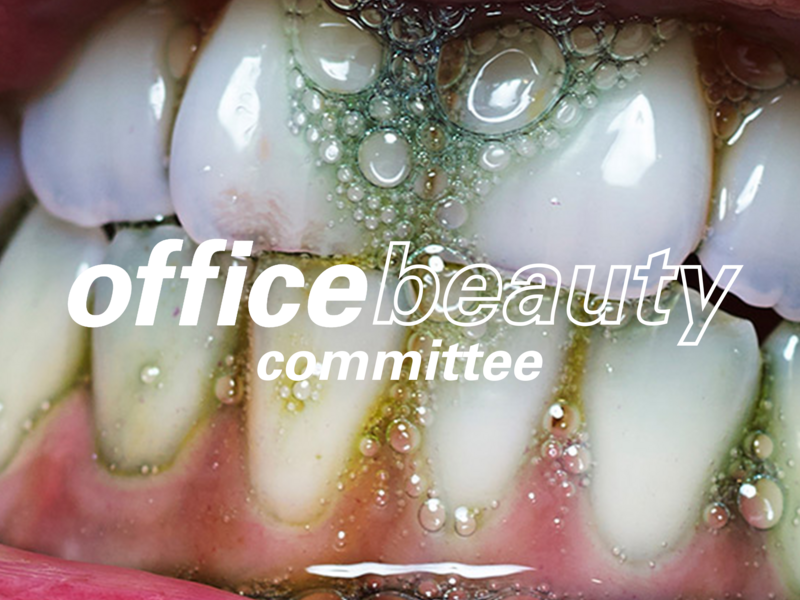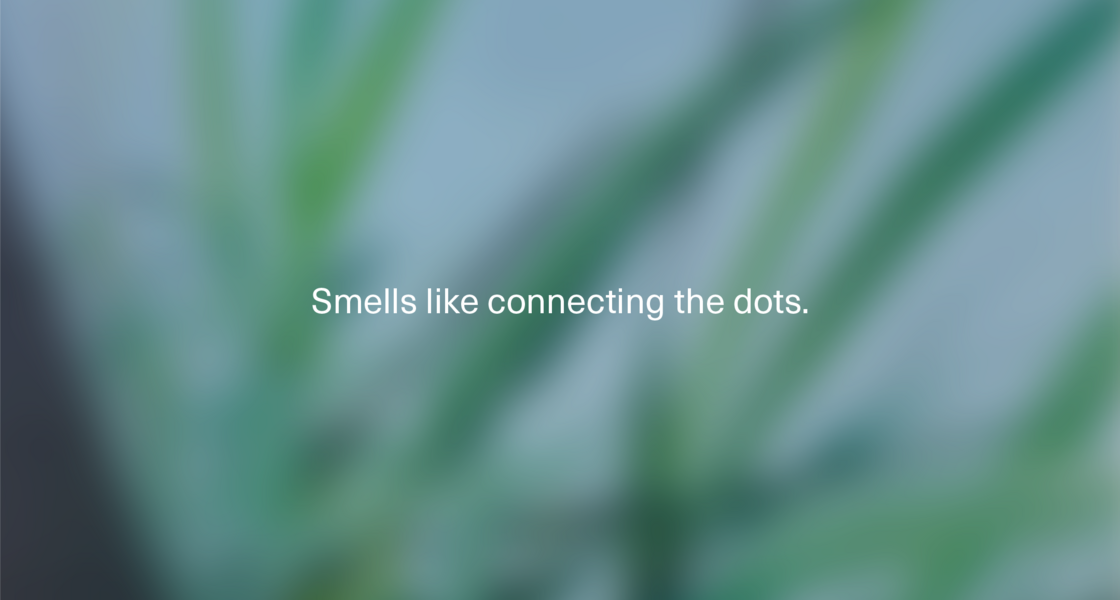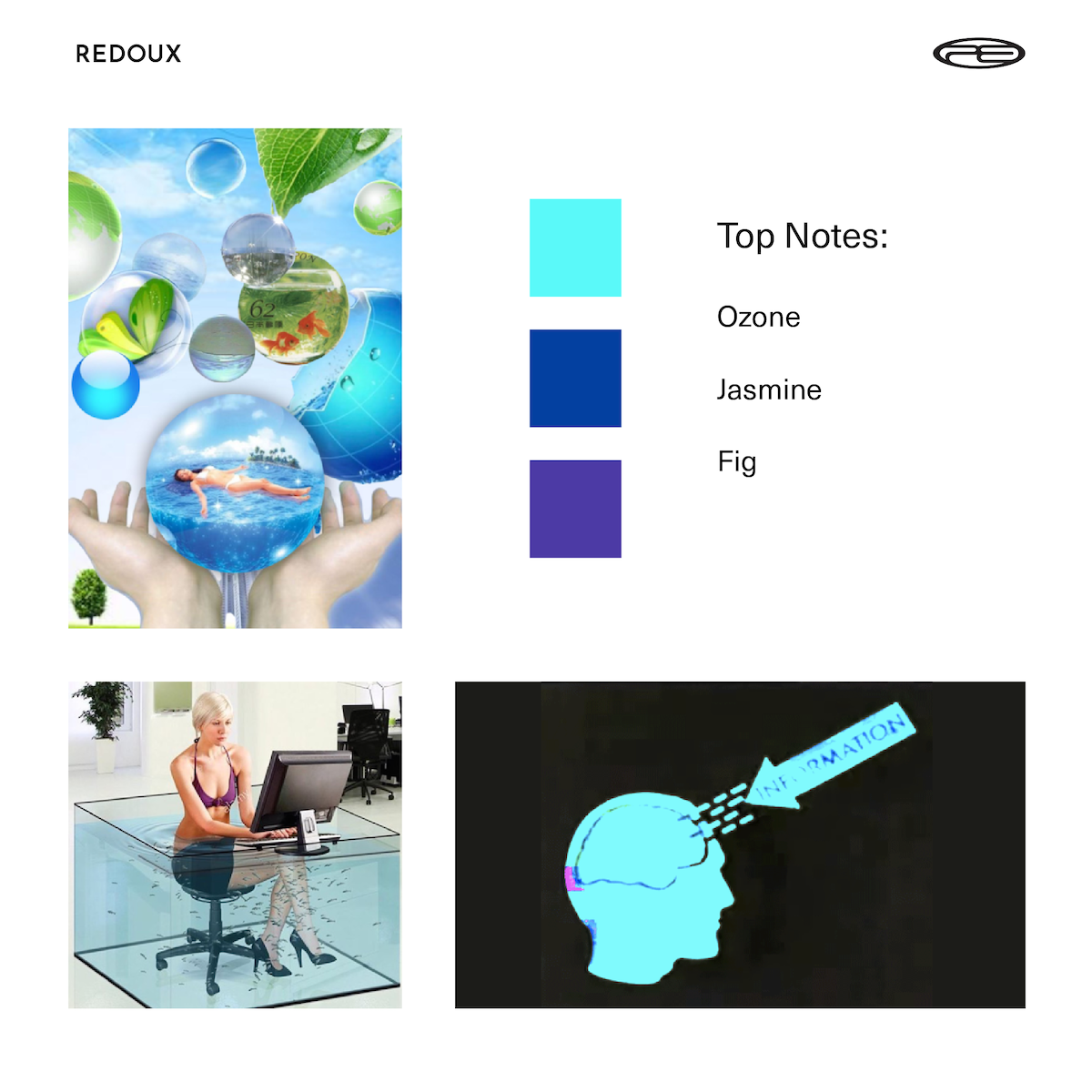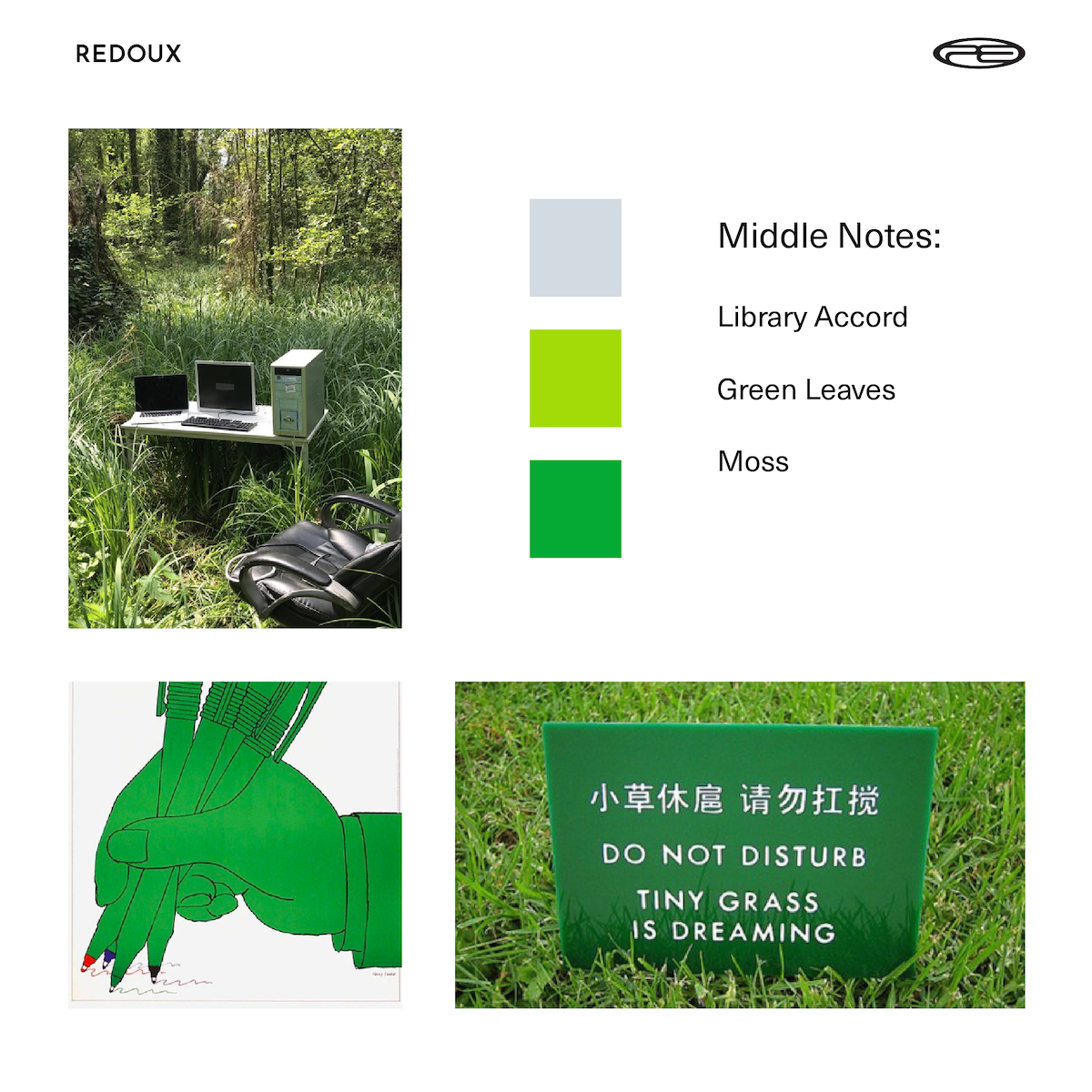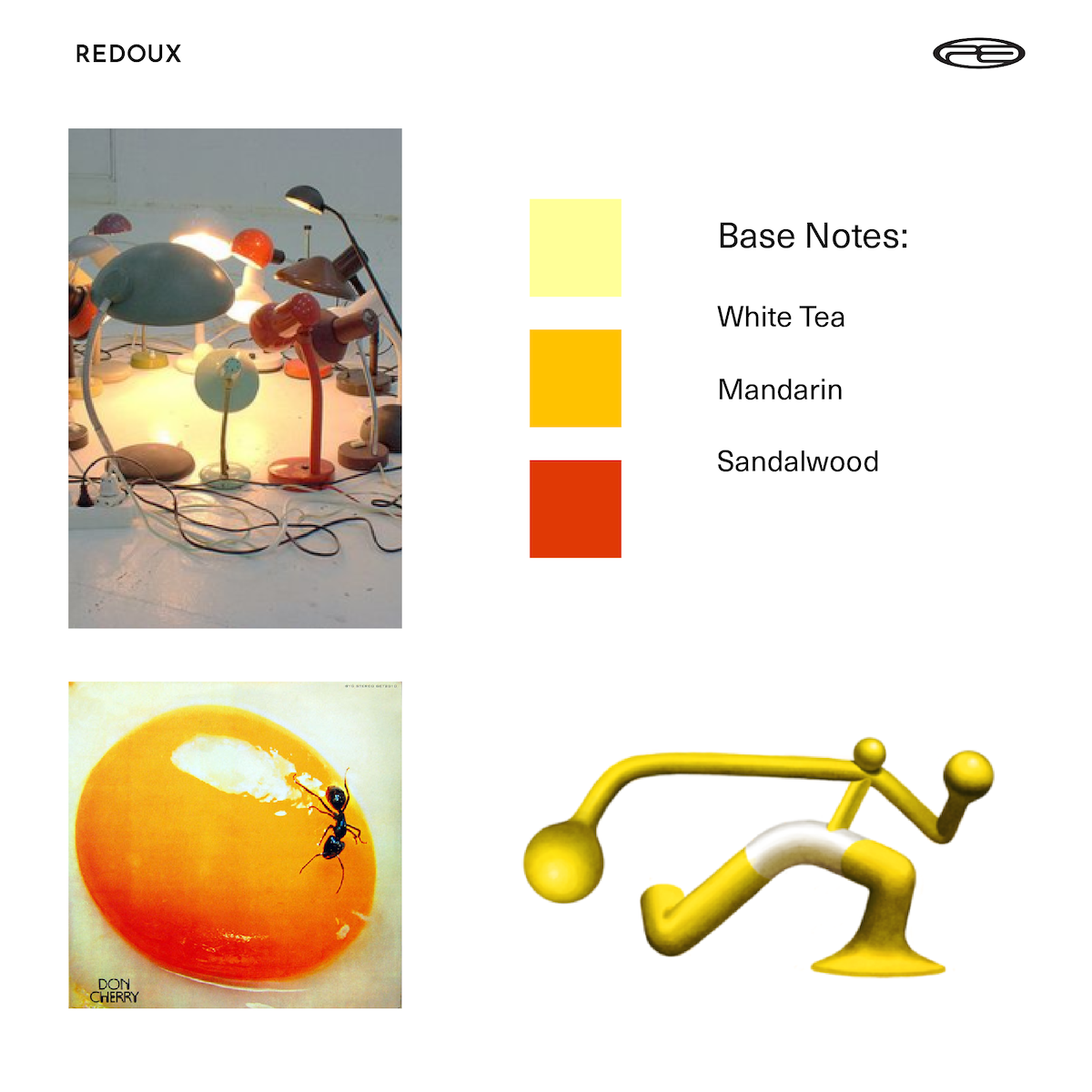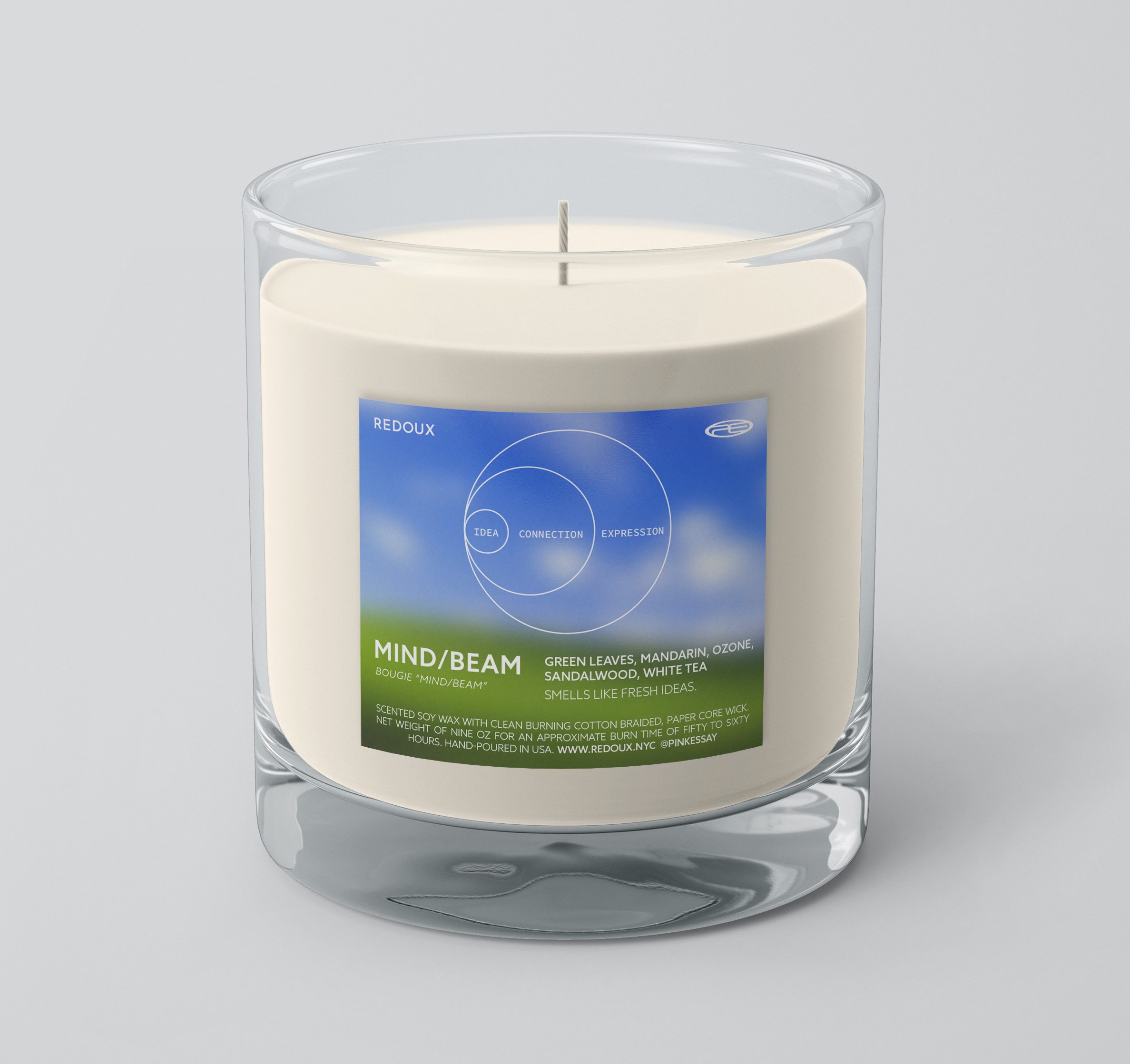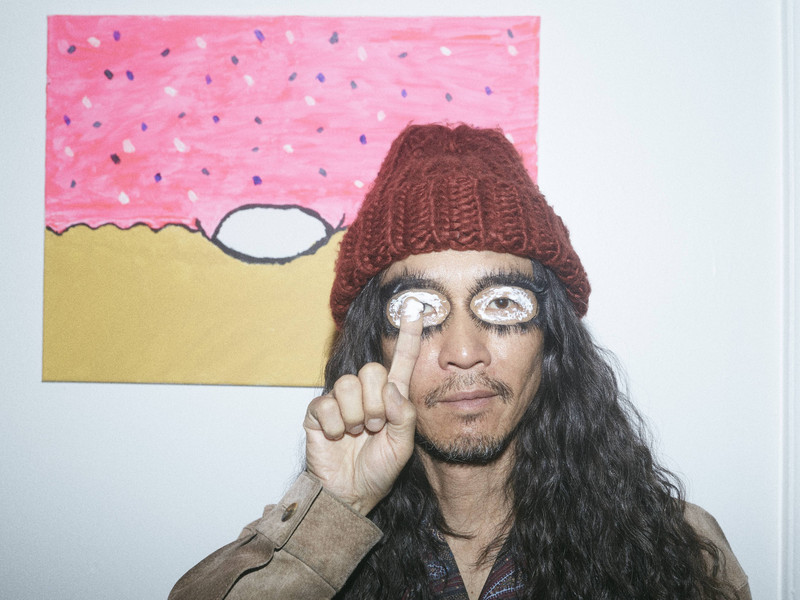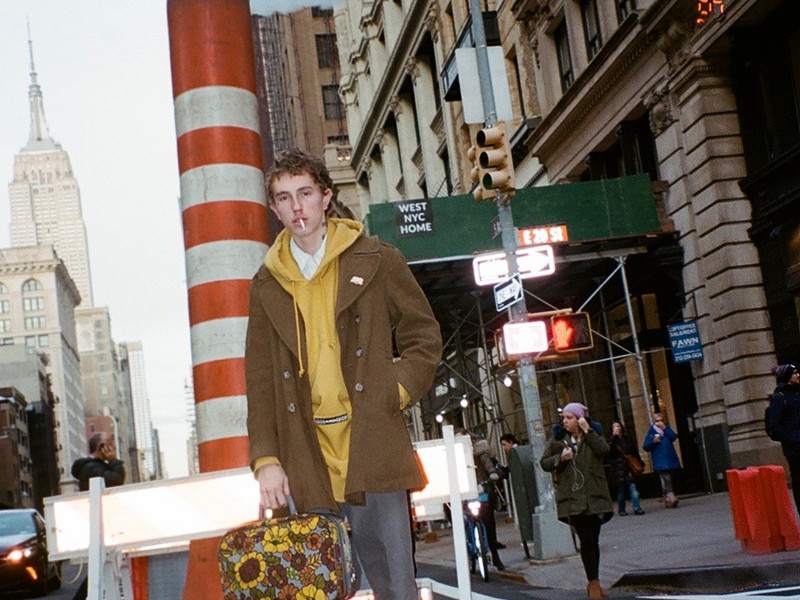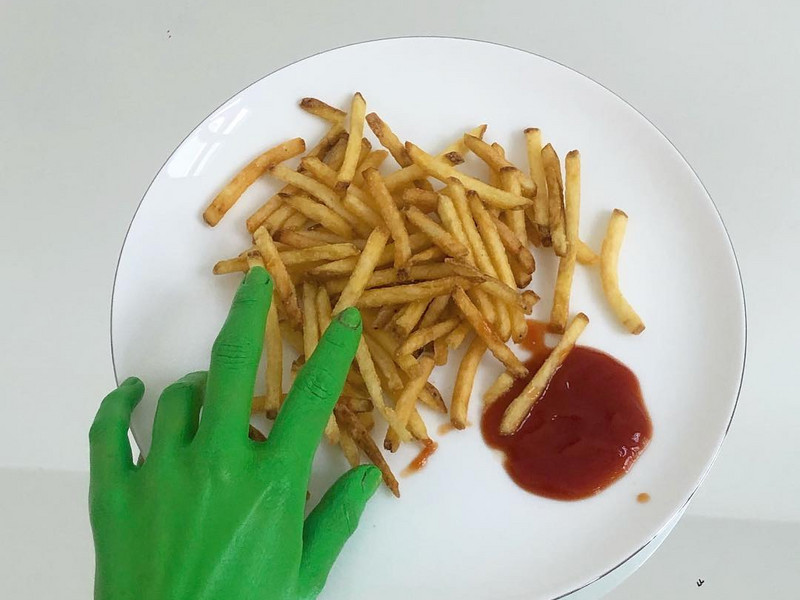Celestial Bodies
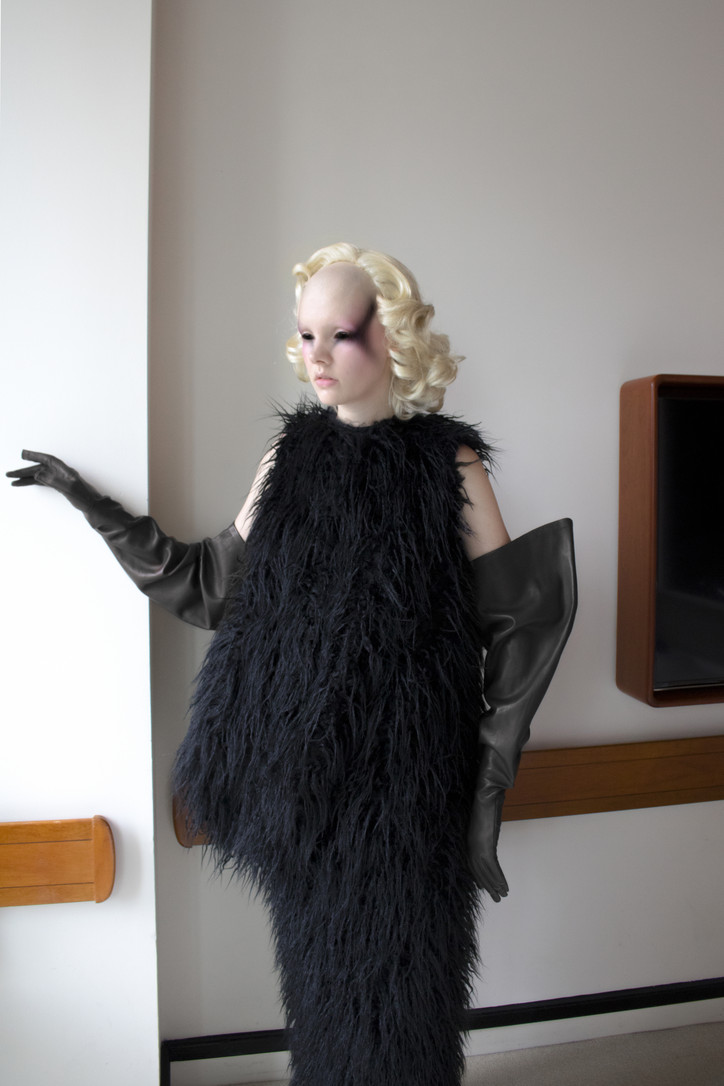
Initially, the two brought their ethereal imaginings to life primarily using Photoshop. In time, Dalton and Baskharan eventually set out to make their designs tangible by creating real-life looks to coincide with their online images. “Hannah and I started creating a little bit of disappointment in ourselves when we looked in the mirror, just in terms of the heightened fantasies of the looks. Then, it was really when we started getting into translating those ideas that we were able to transform the virtual concepts into real life with prosthetics,” says Baskharan in office’s exclusive interview with Fecal Matter.
Check out the full interview below.
Where do you draw inspiration from for your looks?
Hannah Rose Dalton - It definitely comes from a lot of things. I would definitely say nature is something that we really look towards in terms of the colors, the fluid lines. It’s just something that we always try to surround ourselves by, so we definitely draw inspiration from that. We always say we draw inspiration from our fears, so I think maybe that’s more in terms of the concept-based things that we draw upon in our work.
Steven Raj Baskharan - Yeah I mean, what inspires us is always going to be innovation and how to push ourselves. This whole journey for us has really been about becoming fearless human beings as much as we possibly can within the limitations of life. For us, it’s really about finding inspiration from that, so what we were afraid of, what we’ve been afraid of our whole lives, is kind of revealing who we are in public and being ourselves.
And for myself, my family, and being myself in front of them—that was a big fear. So in a lot of ways, what we took in terms of inspiration for our work really stems from what we were going through in our lives and how to basically express that through fashion, beauty, imagery or whatever. For us, it’s really not costumes... It’s actually us really digging deep inside of ourselves and trying to translate that through our visuals. Therefore, there’s definitely an element of DNA within everything that we do. If it’s from an aesthetic point, we’ve taken a lot of inspiration from alien aesthetics and what that would look like merging the human body with other-worldly life forms and connecting that to create something new from our own point of view.
So building off that, do you guys have brainstorming sessions where you come up with your ideas or do you innovate while you create?
HRD - It’s very natural. Like many artists or creators, when they have an idea, they have an idea. And they become obsessed with it, and they have to create it. So that’s kind of how we work.
SRB - Yeah, I mean it’s really a question about money. Money is really the biggest factor of what we do, because if we have a lot of freedom financially, we can really go off, and we can really get lost into just spending time, energy and effort into what we do and create something that can even take a month to create. But then, you know, if we don’t really have a lot of money, that’s really when we’ll find something really cost-effective, and the ideas will really get affected by that. And that’s something I think a lot of people can relate to.
Do you plan the designs and makeup looks in advance?
SRB - A lot of times, yeah. In the early stages of what we did, I don’t think it was pre-planned, because we were just really kind of doings thing free-hand. Also, to just give a little background in terms of makeup, we never did makeup. Makeup was never something that we ever wanted to get into, and it was never something we thought we would even be good at. And still today, I don’t even know if we’re good at makeup. But we just kind of fell into it, and it just…
HRD - We just started doing it to go out for our looks during the day. It was so natural.
SRB - Yeah, it was really when we started doing projects for ourselves, for our brand and for editorials or lookbooks that we started doing for ourselves that we were kind of forced to plan it out. We were forced to also do it ourselves, because we tried working with makeup artists. We tried working with hairstylists and stylists even, and nobody really understood what we wanted, and nobody was really even able to create it. We were at a roadblock where we were like, ‘Ok, considering that we don’t really have a lot of resources, the only we can do is do it ourselves. And even if we’re shit at right now, it’s better than when we’re working with other people…’ A lot of people’s work was really amazing, but it never fit.
And we really just started doing very basic things, but then, that led into a whole new art form that we just fell into and really fell in love with. Now, makeup is a key part of what we do, and it’s key part of how we translate our messages through our work.

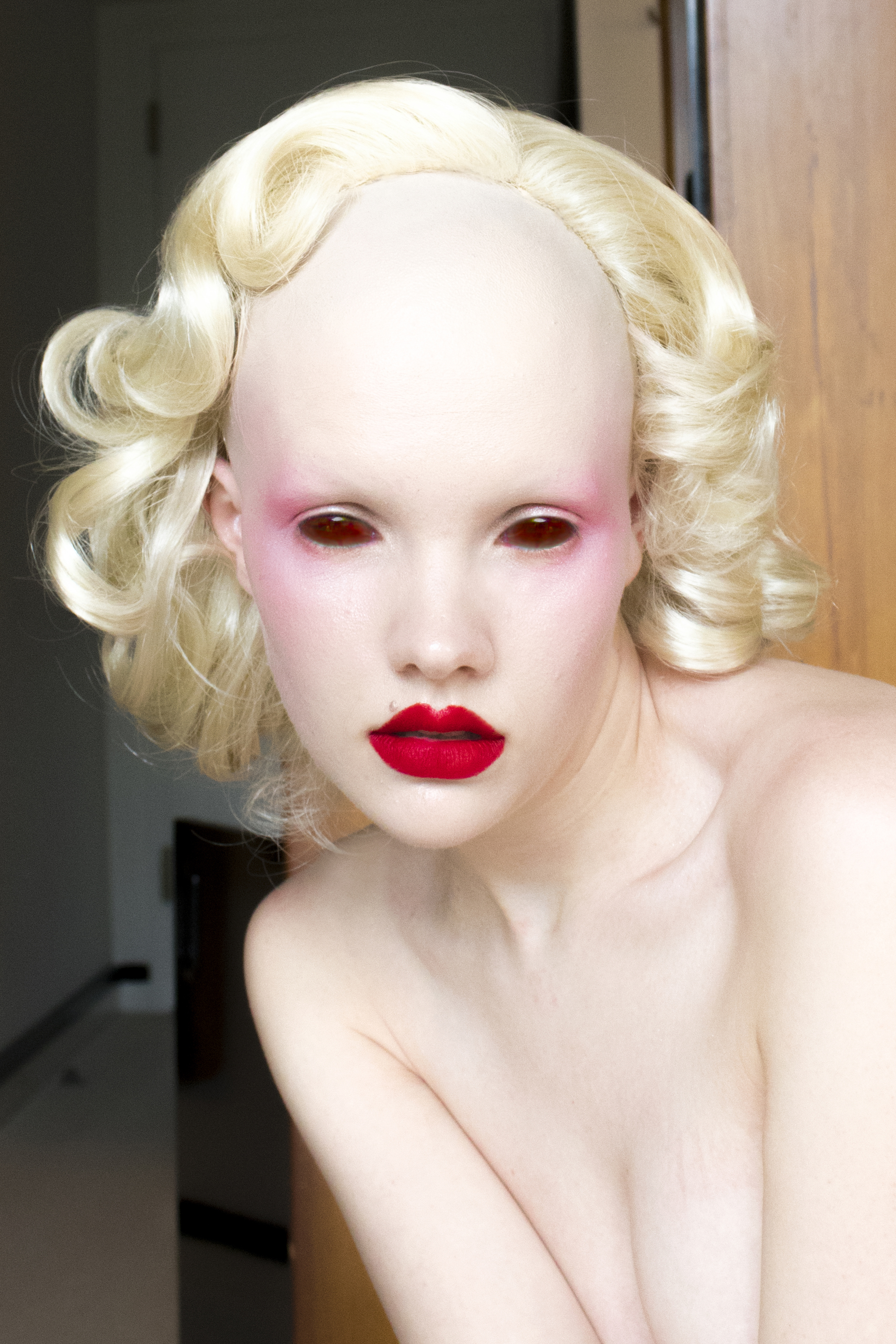
Do you each do your own makeup? Or do you do each other’s makeup?
HRD - We do each others’. We help each other in the whole process.
SRB - Yeah, yeah for us it’s really kind of our little fun ritual. I mean sometimes it gets really stressful if we’re really late [laughs], but a lot of times it's really fun to just do it on each other. And there’s a lot of areas, for example, like putting foundation on the back of the head. Like, I can’t really do that, so Hannah helps me with that. In terms of very detailed work on certain ideas, I’m able to really do that. But then in terms of having the advice of like ‘oh, does this look good,’ we really go back-and-forth, and we really help each other. So yeah, it’s kind of our little thing.
You guys attended fashion school in Montreal. When and how did you learn to manipulate prosthetic makeup?
HRD - It was really just a natural process. Again, in school both of us didn’t even wear makeup, even before we shaved our heads, I never wore makeup. So it was really a super slow process to learn how to use the different brushes, what products are right for your face and all these different types of things. And we still are continually learning different things about makeup. In terms of prosthetics, I mean we just learned from the internet.
SRB - I mean, it really started with Photoshop. Virtually you can do anything; virtually there’s no limits. If you have the right the right tools, you can even transform yourself into somebody else, you know? So it really started with that. To be honest, it started with the drawings that I had. I used to draw since I was really young…especially in terms of makeup, I used to draw all these intense things, but basically things that we’re doing right now. I used to draw them out and translate them on Photoshop. Using Photoshop really was how we started playing with the mutation of the body. But it was really until, me and Hannah started feeling a sense of body dysmorphia, because our social media profiles didn’t look the same as what we looked like in real life. Hannah and I started creating a little bit of disappointment in ourselves when we looked in the mirror, just in terms of the heightened fantasies of the looks. Then, it was really when we started getting into translating those ideas that we were able to transform the virtual concepts into reality with prosthetics or whatever else. Then, with the skin shoes and all of these other types of ways that we’ve kind of started innovating using body modification, and that’s really how I think it started. It’s because it was so free to do it virtually, but then to translate that into real life it takes hours, days. It takes such a long time. Then it’s so fragile because with sweat, or DJing or whatever, your prosthetic can easily fall off if you really go hard [laughs].
Did you guys pivot into making (industrial techno) music or was that the plan from the start?
HRD - We used to go out a lot. Me and Steven don’t drink, and we don’t do drugs. So, we used to go out a lot. And because we never did any substances, we would be able to wake up the next morning and easily go to school or go to work or whatever. Because we wanted to dance and listen to music. But we always found with the club scene and nightlife, there was the never the type of music that we wanted to hear, or it never got to that level of intensity that we wanted from music and the atmosphere and everything, so we decided to just do it ourselves. And that’s kind of how we got into it. I guess we saw there was something missing in nightlife, and that’s why we started to DJ and make our own music.
SRB - Fecal Matter has always been a platform that we created to express ourselves and to do whatever we wanted to do… And I think we always knew that we really loved music, and we’re obsessed with music. It inspires us. It really does. It gets us into a space where we’re really able to be in the zone, and we’re able to dream. But we never thought that we’d ever be producing or DJing. A part of our DJ sets, there is a level of performance to it. The purpose of a DJ is to basically be the soundtrack of the night and provide the music for people to dance to, but nobody really normally like looks at the DJ or pays attention. But with us, it’s really hard, because a lot of the times, it’s the only way that a lot of our fans virtually are able to actually meet and engage with us outside of our fashion shows or whatever. We never thought we would have the courage, because we’re very shy people.
We never thought we would be able to be on stage and have such a great amount of people just staring at you or watching what you’re doing. Now that we’ve started to really get comfortable within that realm, our biggest joy is to actually perform and to really experiment with music and push the boundaries.
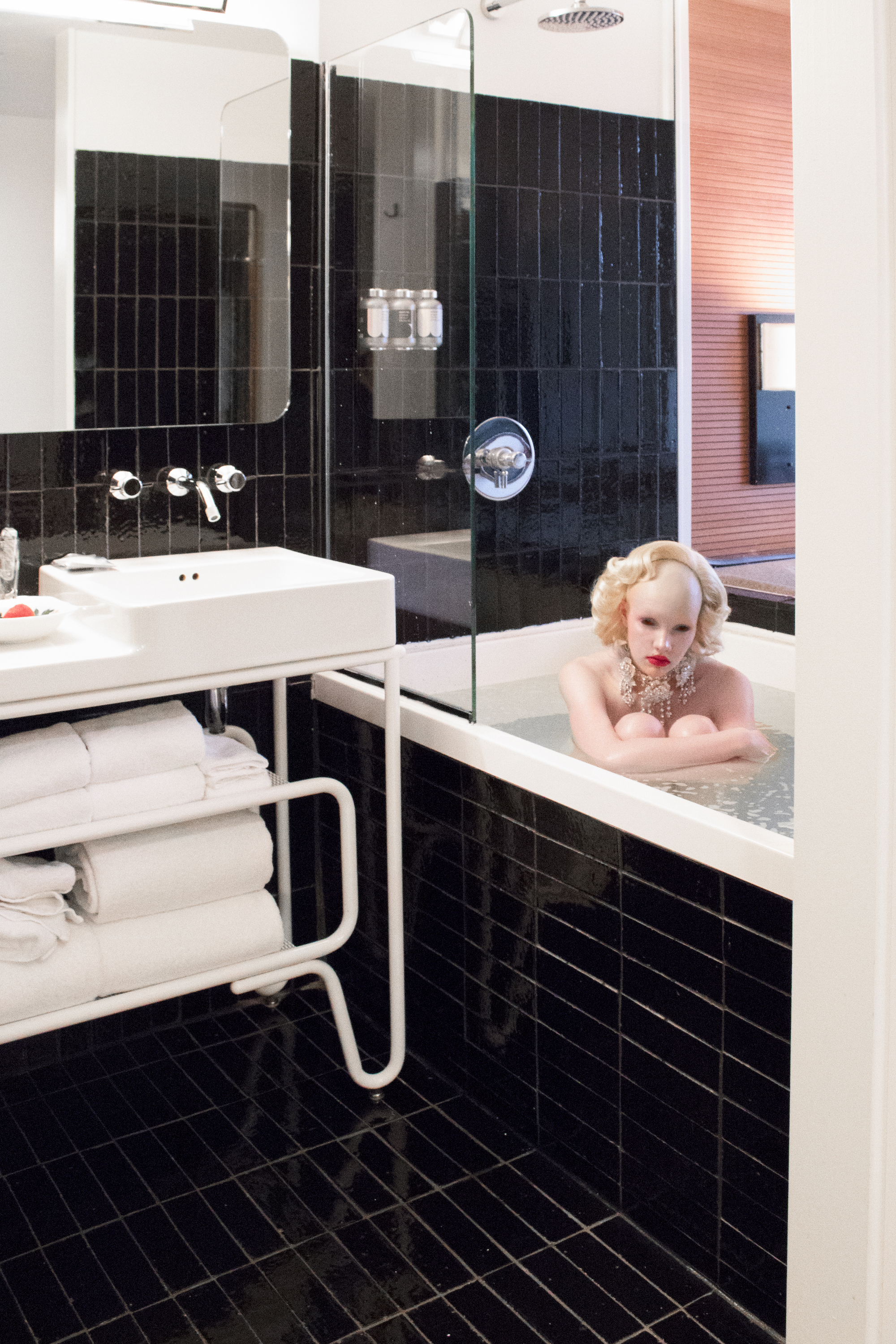
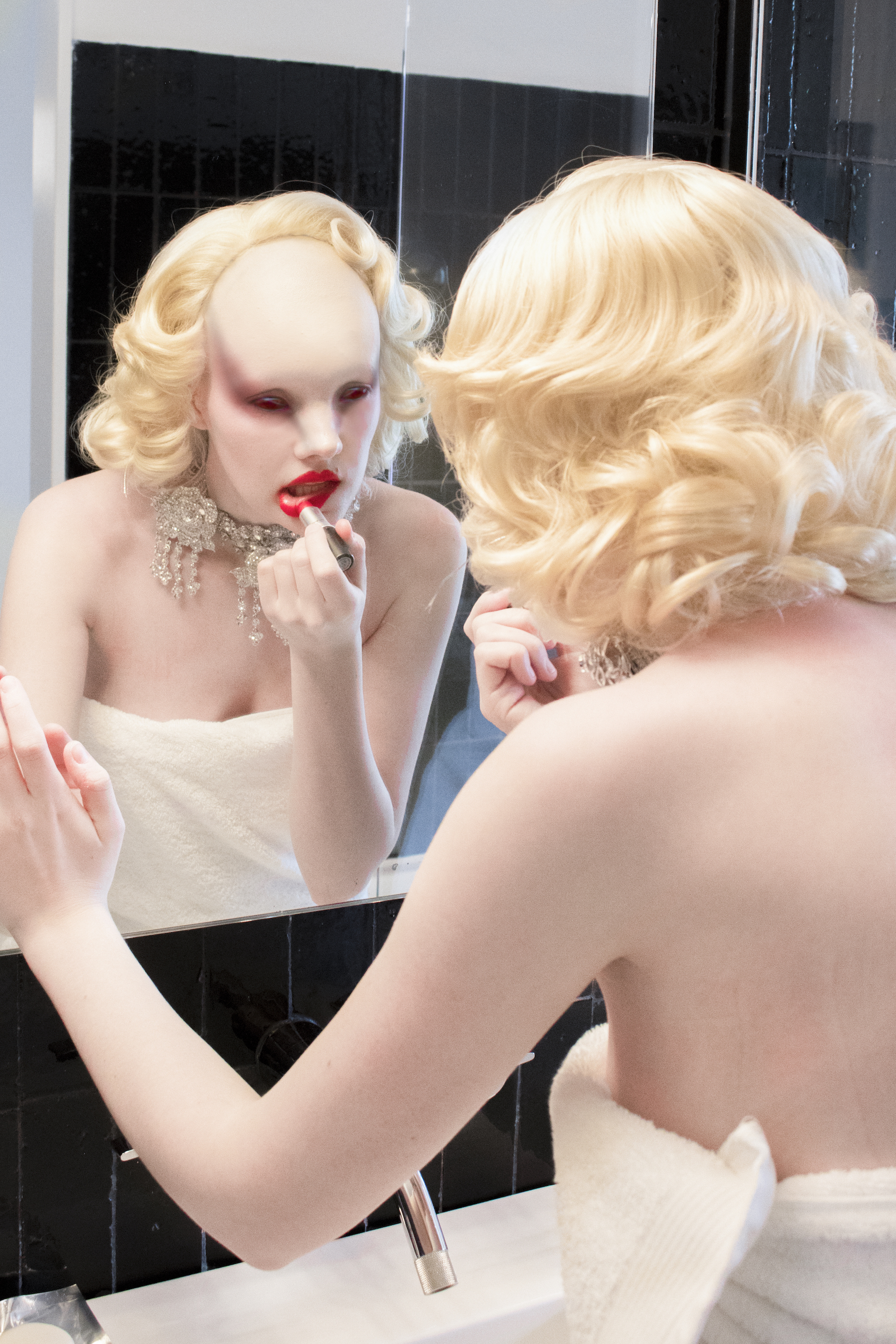
Do you get ready to music? What genre or what song?
HRD - We do. Usually every morning when I wake up, I play meditation music, and we listen to that for a good couple of hours to be honest.
SRB - We listen to a lot of classical music also.
HRD - Very calming, especially when we’re sewing, you know? We always play piano music. S
SRB - Yeah, I mean we listen to a lot of really intense music, like hardcore, hardstyle, gabber, a lot really hard techno, but we’re also into Britney and everything else and the classics. A lot of trance music from the 90s, we really love that type of very spacey music. We listen to music all the time, and it’s always around us. It’s fueling, kind of. When we’re in a rush or if we’re late for something which does happen quite a few times, we don’t play music when we just have to concentrate. [Laughs] It’s all over the place.
Describe your nighttime routine.
HRD - I have to take a shower at night. I can not go to sleep without taking a shower like right before I sleep. I moisturize my face a lot.
SRB - For me, there’s a lot of shaving going on around us. Like we shave so much in terms of our heads and all of that. So, sometimes by the end of the day, our skin can get very sensitive, and it can really feel really painful when you shave like six days in a row.
HRD - And we have to take all the makeup off.
SRB - And yeah, it’s really important to take a moment to just wind down and let everything go. And just like moisturize. It’s so important.
You have 24 hours left to live. How do you spend your last day?
HRD - I would be with my cat. And you [to Steven], sorry.
SRB - I think honestly, me and Hannah, we would create something. We’d create one last thing together.
HRD - Yeah we would create, but I would definitely want my cat there.
SRB - Yeah okay, but your cat is dying so. [Laughs]
HRD - [Laughs] Awww.
SRB - But we’d spend it creating. I think we would maybe like the final Instagram post.
HRD - Oh my god, are you serious? That’s so funny.
